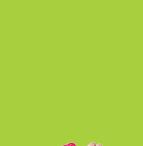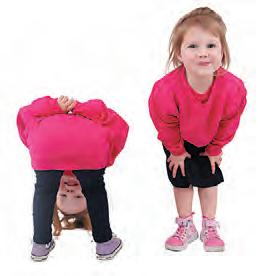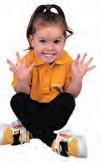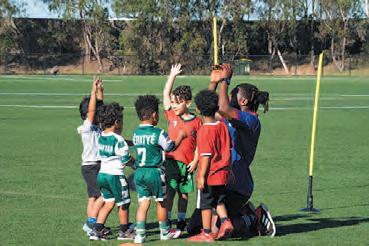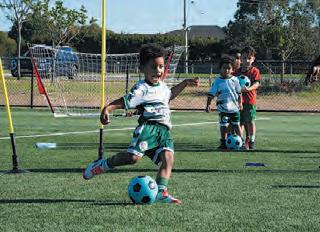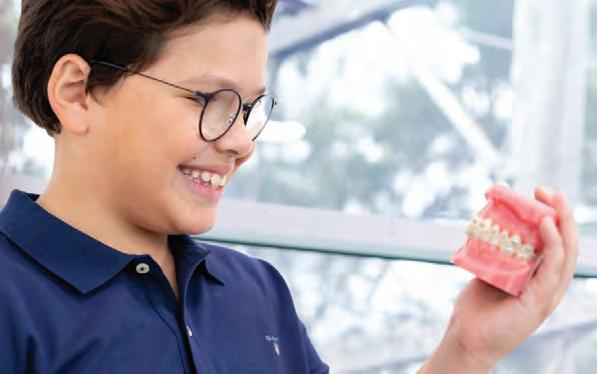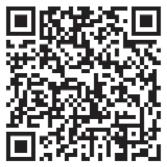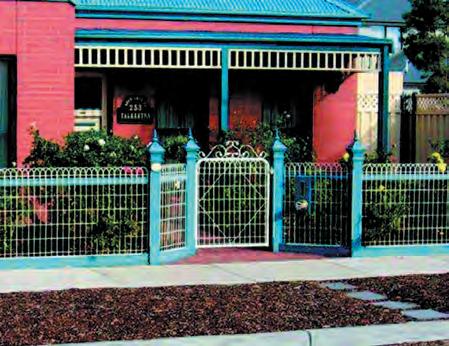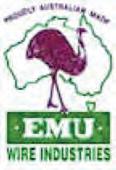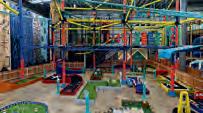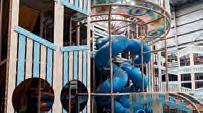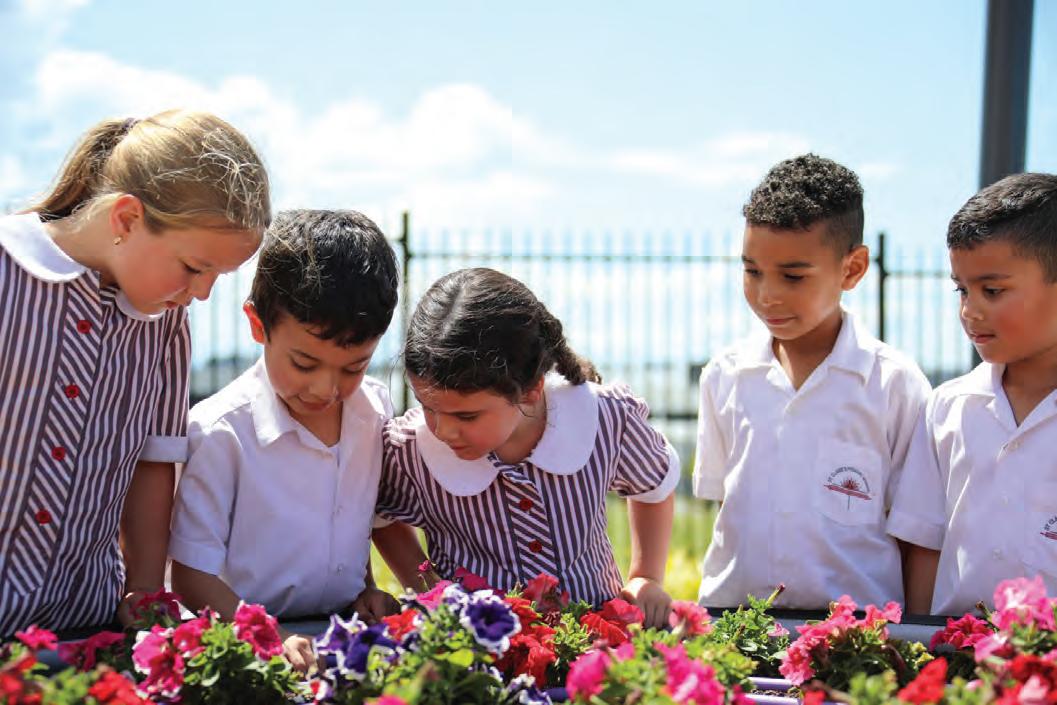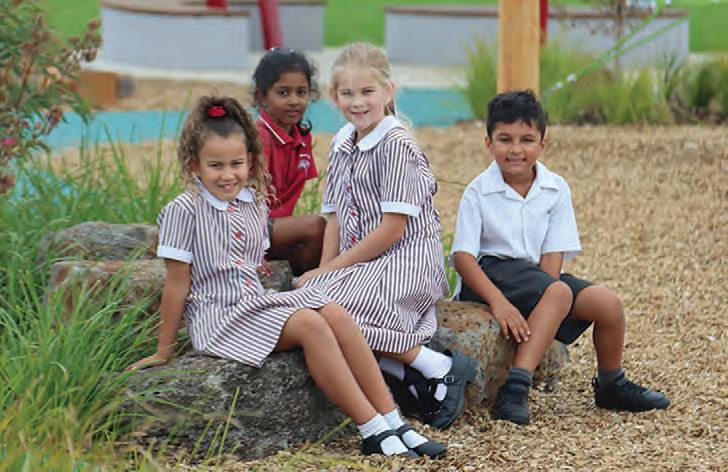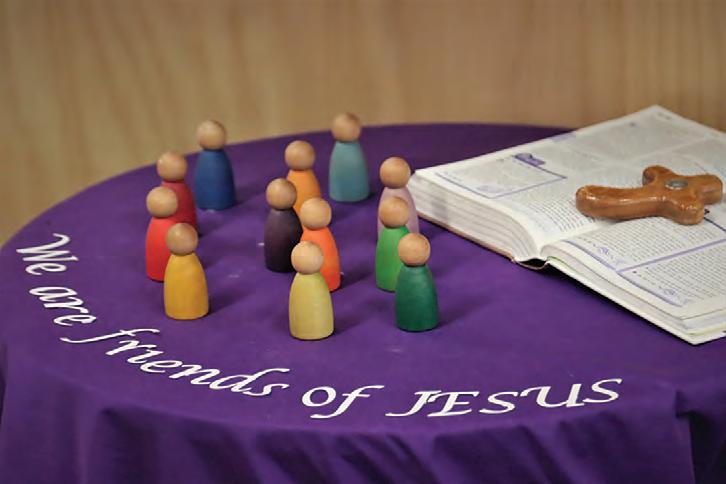AFLW star
Libby Birch
MOVING THE GOAL POSTS
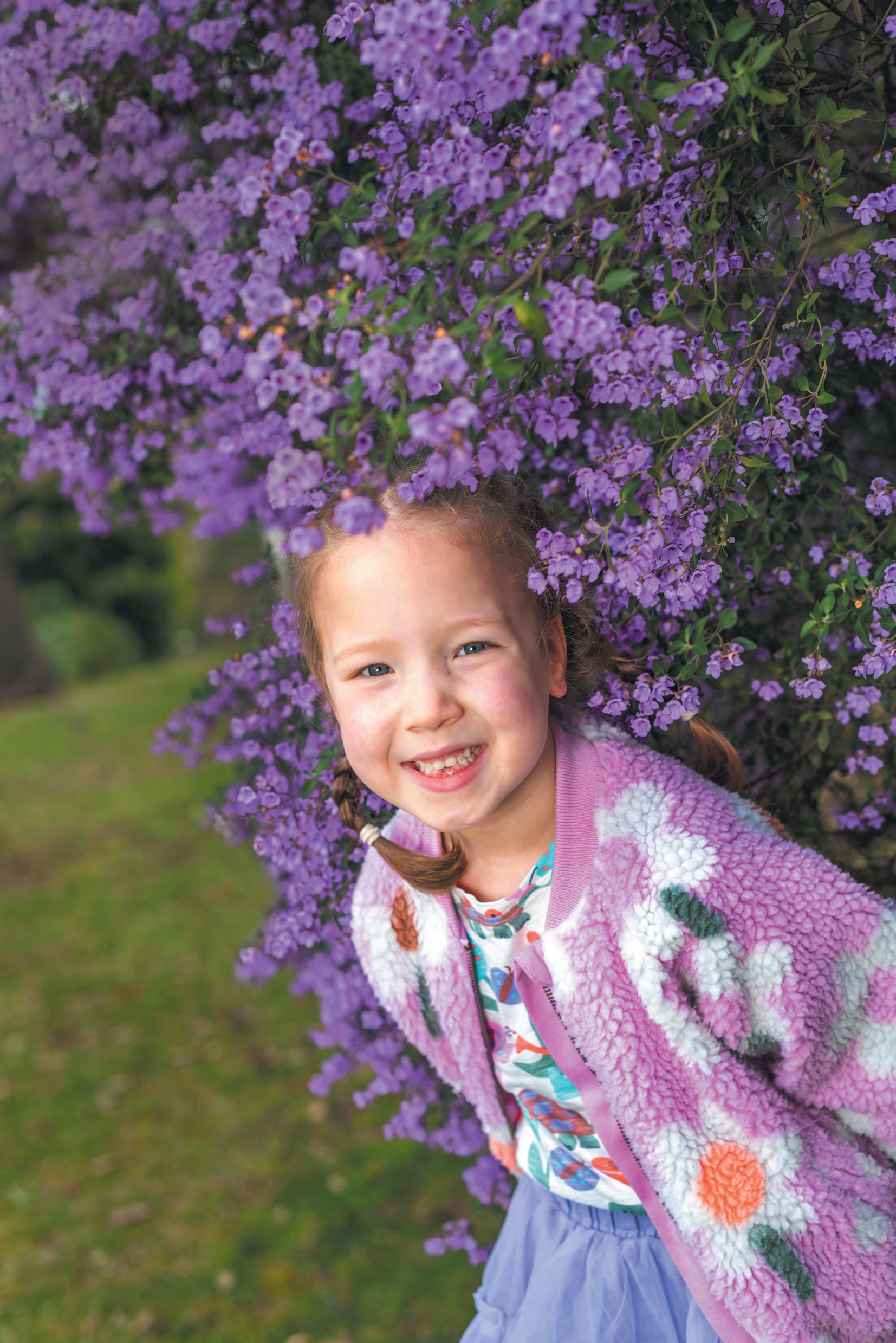
Beaconsfield mum’s
FRACTURED TALE
Grocery guru’s
SUPERMARKET
SWAP


AFLW star
Libby Birch

Beaconsfield mum’s
Grocery guru’s
SUPERMARKET
SWAP

WE’RE all (hopefully) starting to thaw out after a chilly winter, but will those first rays of sunshine be enough to put a spring back in your step?
Usually, I feel rejuvenated when I glimpse the first blossoms emerging from bare tree branches; a signal that nature is getting on with things following a winter wind-down and some encouragement to do the same.
But this year? Oof, I’m not convinced it’ll be enough.
My daughter started Prep this year. ‘You’ll have so much free time once she’s at school!’ I was told at least a dozen times, more often than not with an undertone of ‘What will you do with all of that free time?’.
Well, I’d like to know where I can find this elusive free time. Anyone? Could I have a hint, at least?
Steve Biddulph: Why parents need boundaries
PAGE 4
Feel like your five-year-old is a tiny teenager?
PAGE 4
Beaconsfield author on taking the write path
PAGE 5
Between dropoff and pickup, I feel like a stopwatch is ticking away, urging me to go, go, go.
So go I do, juggling work and household chores on a never-ending loop.
And then there are the tantrums. My little one is soaking up so much new information, meeting new people, adjusting to a new routine, and loving every minute.
But, gosh, the school days take it out of her. Getting her out the door in the morning can be a battle, and after storing up her emotions all day, she can unleash a storm of tears or fury once she’s safely back at home.
I’m tired. Grateful, but tired. And hopeful.
I’m hopeful I’ll find the time and

Free child health check boost for Casey parents
PAGE 6
New Maternal Child Health Nurse service sites for Casey
PAGE 6
Supermarket Swap: Empowering parents to make better choices at the supermarket
PAGE 7
Scared of giving birth? Staying positive could improve your experience
PAGE 8
Family violence reform: MP Renee Heath
PAGE 8
Casey’s new parenting lifeline PAGE 9
Vitamins vital for breastfeeding mums
PAGE 16
Unique disability support and care PAGE 16
ADHD mums more at risk of PNDA PAGE 17
Pharmacy 777: Fight the flu PAGE 17

Bravehearts: Teaching children personal safety strategies can protect them from abuse
PAGE 10
Keeping kids safe from the start: MP Ann-Marie Hermans
PAGE 10
Kicking off a new chapter: AFLW star Libby Birch
PAGE 11
Kids in the Kitchen: Dubai chocolate ice creams
PAGE 12
A fresh place to play: Berwick Springs West Playground
PAGES 14-15
- most importantly - motivation to take a nice long walk, soak up some spring sunshine, and surround myself with blooms. Take a deep breath.
I’m craving a spring reset to get me through the rest of the school year and prepare me for the silly season, and I’m sure I’m not the only one.
So, in the absence of any other ideas, I’m putting my faith in nature.
How do you find motivation when you’re feeling weary? What puts a pep back in your step?
Share your secrets! Find us on Facebook or Instagram, or email casey.neill@starnewsgroup.com.au.

Cranbourne Dental Centre: Children’s oral health PAGE 18
Creating confident smiles: South East Orthodontics PAGE 18
Premiers’ Reading Challenge: Two decades of words and wonder PAGE 19
One Early Education: World-class early education PAGE 19
Learning boost for Royal Children’s Hospital kinder
PAGE 20
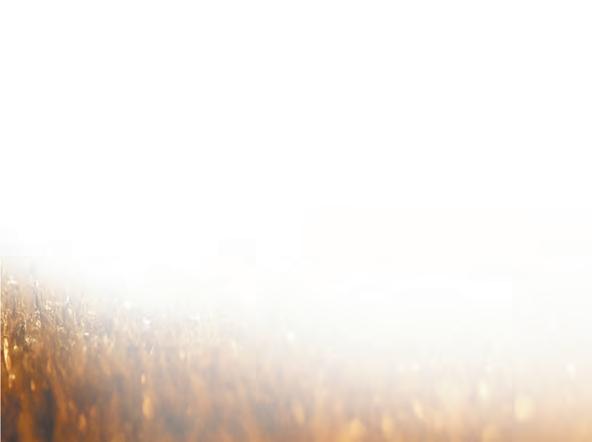
Enliven your senses, challenge your mind: Enchanted Adventure PAGE 23
Free fun Fridays for the kids: Cardinia Lakes Shopping Centre PAGE 23
A vibrant, welcoming community: Monash Retirement Community PAGE 24

Love and learning, hand in hand: St Therese’s Primary School PAGE 20
More kids can save lives: Ambulance Victoria PAGE 21
Minaret College: Discover, explore and celebrate PAGE 21
Spot the early warning signs of school stress PAGE 22
Teaching teens to think of others: Cranlana Centre for Ethical Leadership PAGE 22
School holiday fun in Cardinia Shire PAGE 25
PARTY TIME PAGE 26
BORN TO PERFORM PAGE 27
FOOD, GLORIOUS FOOD PAGE 28
Foster fire safety through fun PAGE 26
Fourth trimester ‘rough, but beautiful’: The Midwife Mumma PAGE 27
Want your teen to move more? Move with them!
PAGE 29
Toddlers and dams a dangerous mix
PAGE 29
The latest spring fashions from Berwick’s Billy Lidz PAGES 30-31
Casey Cardinia Kids magazine is a Star News Group publication.
Casey Cardinia Kids will be published quarterly prior to each of the school holidays.
Casey Cardinia Kids Cnr Princes Hwy and Army Road, Pakenham, 3810 PO Box 9, Pakenham, Victoria 3810 Phone: 5945 0666 Fax: 5945 0777
Editorial Casey Neill casey.neill@starnewsgroup.com.au
Photography Rob Carew
Stewart Chambers
Group Advertising Sales Manager Mandy Clark mandy.clark@starnewsgroup.com.au Phone: 5945 0608
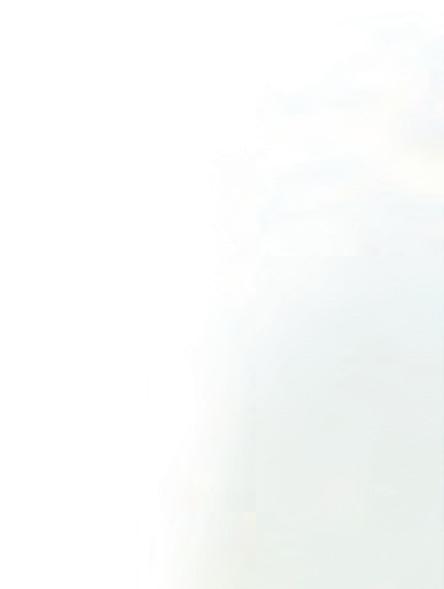
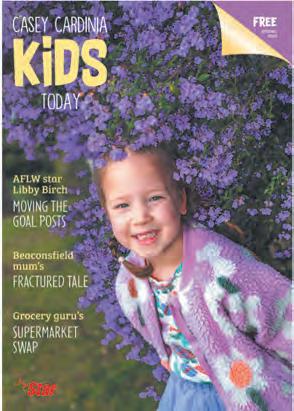




Dale Sidebottom shares 365 Days of Play PAGE 32
Dapper amphibian shares diversity message PAGE 33
Boys Do Cry: Gus Worland PAGE 34
New book releases for all ages PAGE 34



Have trouble saying no? Here are some clues to make it easy and why it matters, writes STEVE BIDDULPH
LOTS of psychology terms creep into our language for one good reason - they turn out to be useful.
Nobody cringes to use the expression ‘me time’ anymore, because boy, do parents ever need that.
‘Self-care’ would not be a term you would have heard much a hundred years ago, but it’s now seen as essential in being a parent - we are no good to our kids if we burn out and can’t get out of bed.
Another is ‘boundaries’, referring to our sense of our limits, our no-go zones, where we would want to stand firm, whether it’s with our child’s behaviour or agreeing to bake cakes for the school fair.
Boundaries are essential to mental health because they are our way of knowing when to say no and, in order to do that, knowing when we are getting out of our depth with commitments, fatigue, overload, or just plain not wanting to do something.
But studies show that as many as half of all adults feel they have trouble with boundaries.
In my talks, I often ask, “Who has trouble saying no to things, and ends up doing things they really don’t want to? Who feels that they are not really true to themselves a fair amount of the time?”
An awful lot of hands go up.
The reasons are pretty obvious: we don’t want to upset others or appear rude or selfish. But we go way too far the other way.
And there are no surprises for which gender has the most trouble with ‘people pleasing’ and ‘putting others first’, being the one who eats the burnt chop from the back of the grill.
Much of this is admirable - I think that our greatest happiness comes from being there for each other - but not beyond the point of harming our own health or happiness. Or our values.
At a point in my career as a speaker, I stopped accepting any events held in venues with poker machines. These cause so much harm to familiesfinancial ruin, but also domestic violence and suicide - that I don’t think they should exist at all.
Boundaries are something we need help with. I got interested in identifying boundaries and understanding where our ‘true self’ lies while writing my book Wild Creature Mind.
Because it is not always in our ‘thinking’ mind. Somewhere, deep down, we KNOW what is right for us because of a gut feeling - not in words, but a sensation in our body.
It is different for everyone, but you know it when you feel it. That phone call to ask you to do someone a huge favour, and your stomach goes ‘erk’. ‘It is just way too much, and this person is always
asking too much; it’s a very one-way relationship.’
What to say? “I just don’t feel that I can!”
Notice that sentence refers to a ‘feeling’, not a reason or argument. You can’t argue with a feeling.
You can even be super vague: “I’m not sure why, but I just don’t feel comfortable saying yes to that, I will have to say no this time, I hope you can find someone else.”
If you have trouble thinking under pressureand the term ‘put on the spot’ is exactly what describes this common experience - then here is a strategy to use.
People who manipulate or use others, or even innocent but way-too-needy friends, know almost instinctively that they can get us to agree by a surprise pounce when we least expect it.
Do something to give yourself time to listen to and figure out your inner compass, your felt sense of whether this is a ‘yes’ or a ‘no’.
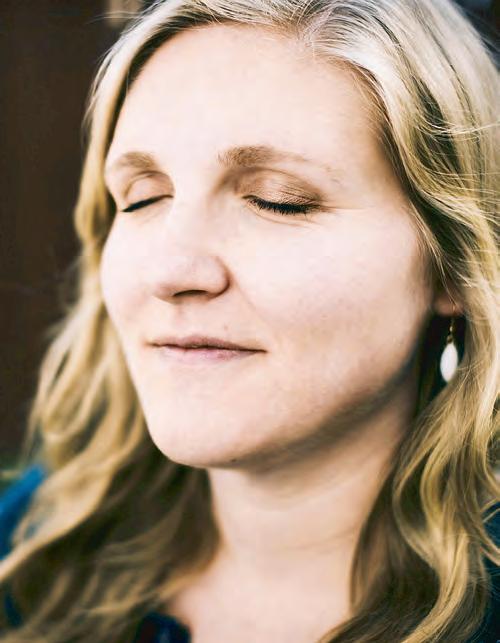

You can do this with requests from your children - to go to a sleepover that makes you uneasy, for example - or a teenager asking permission for something a bit dodgy. Simply say: “I am not sure how I feel about that, I need time to really listen to my insides, I will get back to you tomorrow.”
Then you will know - that uneasy feeling in your tummy, or tightening of
your shoulders (about taking on more burdens) will not dissipate, but grow stronger. And you will know your true compass and feel clearer and stronger. And be able to breathe a big sigh of relief that your boundaries are good and that you are also teaching your kids to have good ones.
Steve Biddulph is the author of Wild Creature Mind - a book about conquering anxiety - and the world’s top-selling parenting book this century, Raising Boys.
Feel like your five-year-old is a tiny teen?
By Casey Neill
TRADITIONAL ‘teen behaviour’ isn’t exclusive to true teenagers.
Speaking to Eltham psychologist and author Dr Jari Evertsz, I divulged that my five-year-old daughter’s behaviour



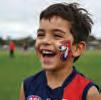

seemed to be providing a glimpse of her teenage self of late.
Wild mood swings, intense feelings, shouting, and tears abound. So, are there similarities between the behaviour seen in five year olds and teens?
“There absolutely are!” Jari said.
“Five year olds are also going through tremendously fast developmental changes and while navigating their transition between kinder and school they suddenly get a glimpse of autonomy.


Friday 26 Sept | 11am - 2pm

“In a very little person, that’s quite a combination.
“There is also a similar patch around the age of two and a half to three.”
So, if you feel like you live with a tiny teen, you’re not alone!


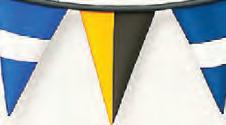
Saturday 27 Sept | 9.30am - 12.30pm FREE Facepainting Get your face painting for Grand Final Day


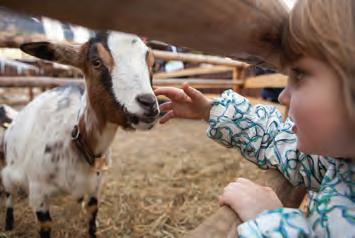

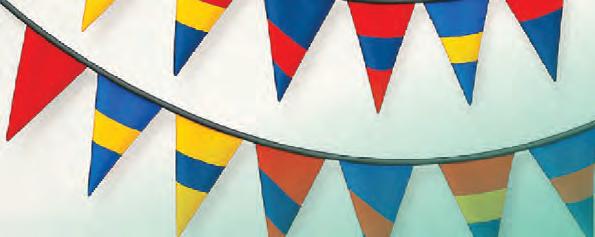
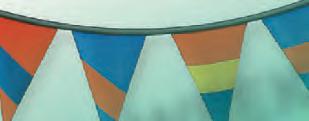

Make up your Footy Team Kite and proudly fly your team colours Tues 30 Sept to Wed 1 Oct 11am - 1pm Daily Mobile Mini Farm Pat and feed some cute and cuddly baby farm animals
By Casey Neill
GEMMA Frances wrote her first book when she was nine years old.
The Beaconsfield author and mum of three has come a long way since penning Tom’s Farm, illustrated by her artist dad.
Gemma rediscovered the lovingly preserved book during a recent trip to her country of birth, the UK.
She read it to her daughter, “who laughed and said it was boring and could she please choose something else”.
“With the benefit of having written continuously for the past ten years, I can see where I went wrong,” Gemma laughed.
“As someone who has always struggled with self-esteem, writing is one of the things I feel most confident about.”
Gemma just released her third novel, Fractured, based on her experience working in child protection in the UK and Victoria.
It follows the Season children and their mother, Lisa, as they navigate involvement with child protection services, from an initial report through to court proceedings.
Lisa was exposed to family violence in childhood and mirrors this dynamic in her own adult relationships, exposing her children to similar experiences.
She loves her children and is terrified of losing them, but she’s unsure how to move forward.
Fractured explores the choices she makes and their impact on her eldest daughter.
Gemma hopes Fractured humanises those involved in the child protection system, from the children to their families, carers, and protective workers.
“We all live within shades of grey and require the empathy, support, and grace of others from time to time,” she said.
“Since becoming a parent myself, I have developed a lot of empathy for parents who are struggling, particularly those who are isolated and lacking a positive support network, as well as a lot of empathy for children who require more than parents are sometimes able to give.
“I’ve gained insight into the indelible mark trauma can leave upon families and how the impact of trauma can result in damaging patterns of behaviours that are often repeated across generations.
“Becoming a parent is a huge change of identity - it’s simultaneously demanding, exhausting, sacrificial, awe-inspiring, and beautiful.
“It’s the hardest thing I’ve ever done and the most important thing for me to try to do well.
“I’m very conscious when I parent my children of maintaining a strong connection with them.
“My instinct is to prioritise a loving connection, and when I fail - which is inevitable at times - it’s my hope that this is what will prevail and see them safely through to adulthood.
“All three of our children have beautiful, kind hearts and a big heart for others - I’m very proud of them for that.”
Gemma has a 16-year-old stepson, a son, 8, and a daughter, 6.
“My children don’t so much influence my writing as motivate me,” she said.
“I hope I can role model to them in the future that when I found something I loved, I pursued it diligently, worked hard to improve, and didn’t give up.
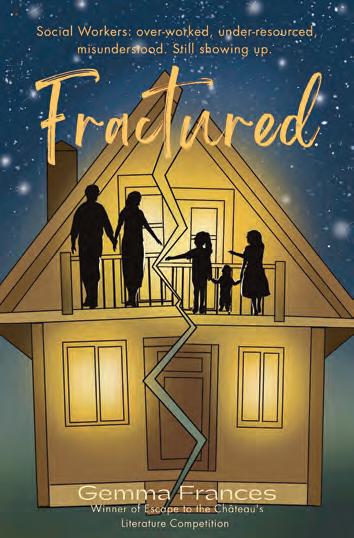
“I think we all have our own gifts and I look forward to watching my children discover theirs more and more as they grow.”
Her first novel, Meet Me At The Melbourne, follows a young woman who opens a Melbourne-themed cafe in the UK that brings the community together and opens the door to romance - and a hint of danger.
“When Covid hit, I came across a competition hosted by Dick and Angel Strawbridge of the TV show Escape To The Chateau,” she said.
“I submitted my book, and a winner from Dick and Angel’s top six manuscripts would be chosen for publication via a month-long public vote.”
She won, and Meet Me At The Melbourne landed on book shelves in 2021.
Gemma self-published her second novel, The Debutante, and Fractured.
“Publishing has changed a great deal in a very short space of time,” she said.
“Writers are competing within a grossly saturated market where they must not only be able to write books, but market them as well.
“Often, the writer’s ability to market themselves and their work is more likely to secure them a publishing deal than the quality of their writing.
“To me, that is topsy-turvy.
“By self-publishing, I can stick to writing and publishing my books without having to prove that my social media following is stronger than my writing.”
Gemma donates her time to Australia’s Charity Journal, a non-profit that empowers charity leaders, advocates, and ambassadors to share their stories with the community.
She also studies and writes, and, when we spoke, was to start a new social work role that took her out of statutory services for the first time in seventeen years.
“Our youngest has recently started Prep and it feels like we’ve entered a new era in parenting,” she said.
“I’ve started to ask myself what I really want from the second half of my life and begun taking steps to make the changes that will lead me there.”
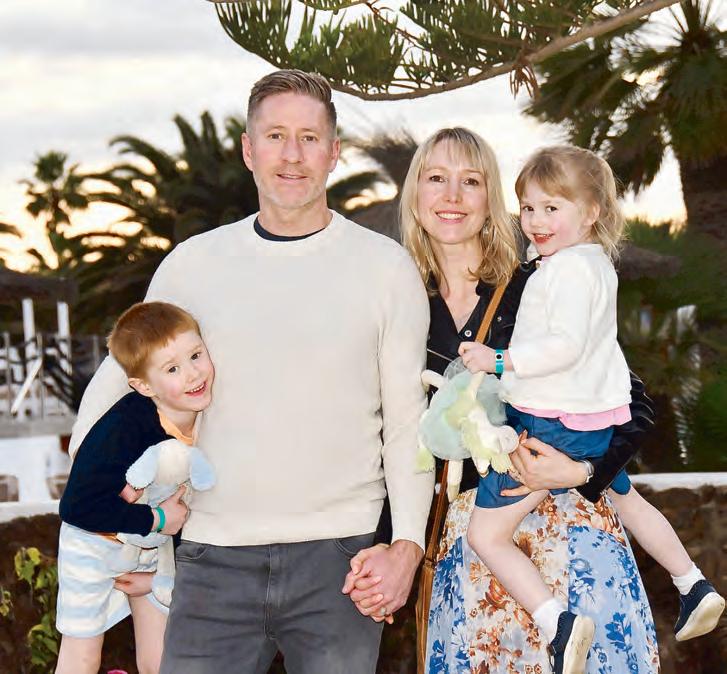







By Casey Neill
CASEY parents are urged to take advantage of additional free health checkups for their babies, toddlers, and preschoolers.
The City of Casey has increased its Maternal and Child Health (MCH) Service nursing team and added Saturday appointments to accommodate children who’ve missed their two and three-anda-half checks.
The MCH service offers 10 appointments at key stages to support families with child health information and developmental checks, including height, weight, speech, motor skills, and social and emotional development.
Nurses provide guidance on feeding, sleep, toilet training, and behaviour, as well as advice and any referrals required on oral health, hearing, vision, and more.
Councillor Michelle Crowther said MCH access was one of the key issues that led her to stand for election.
“These vital assessments provide families with an opportunity to check their child’s growth, development, and overall wellbeing, helping to identify and address any concerns early,” she said.
Cr Crowther spoke out about nurse and appointment shortages and decreased participation in MCH appointments in March 2024.
A mother and women’s health physiotherapist, she said the services were critical for detecting early developmental disorders, like hip dysplasia.
“And by not having that diagnosed early and not getting the right treatment early, that’s something that will affect that child for the rest of their life,” she said.
Casey MCH nurse Jessica Coenen said Covid had a big impact, “not just for the City of Casey but statewide as a whole”.
“We were finding lots of councils were reducing their capacity to only meet with vulnerable families and new babies,” she said.
“We were then finding, because of that, families weren’t reengaging because they didn’t understand the service was back up and running.
“Some kids, they haven’t been seen for a long time.
“There are things that might not have been picked up, like speech concerns, hearing concerns, and ASD traits.
“At our three-and-a-half-year check, we do a basic vision test, looking for squints and eyes turning in and out.
“We want to have our appointments filled and we want to see these families.
“We’re trying to make it as accessible as possible.”
Jessica said cost-of-living pressures meant parents were returning to work sooner and working more hours, limiting their availability to attend appointments, and some didn’t have access to transport.
“What we’ve done is open up more Saturdays so that we are hitting and targeting our two-plusyear-olds,” Jessica said.
“We’re doubling our workforce on a Saturday to run five-hour sessions.
“We are offered to every single child in the City of Casey,” she said.
The team also links families with the Dads Matter program, offers a lactation drop-in clinic, and has a sleep and settling team.
“We run online sleep and settling sessions, which we came up with throughout Covid to be accessible,” Jessica said.
“Then we have a team that can go out and visit the family at home - during daylight hours - and can do more tailored work with families.”
The MCHNs look out for signs of family violence, relationship breakdown, and financial concerns, and can refer parents to other services.
“We are a family service so we’re also looking for family dynamic issues,” she said.
The team works with LanguageLoop to cater to parents who speak a language other than English.
“We have also started a first-time parents group in Dari in Doveton,” Jessica said.
“We’re trying to meet as much community need as we can.
“A lot of families who’ve moved to Australia, their extended family lives overseas.
“They haven’t built their community here.
“Accessing our service is so important.”
To make an appointment, call 9705 5590, Monday to Friday between 8.30am and 4.30pm.
Visit www.casey.vic.gov.au/ maternal-child-health-services for more information.
more information
“We have done a massive recruitment drive. We are the biggest service of MCH nurses in the state.
“We also have the largest growth.”

More than 5700 babies were born to Casey families in the past financial year, with 6000 predicted next year.
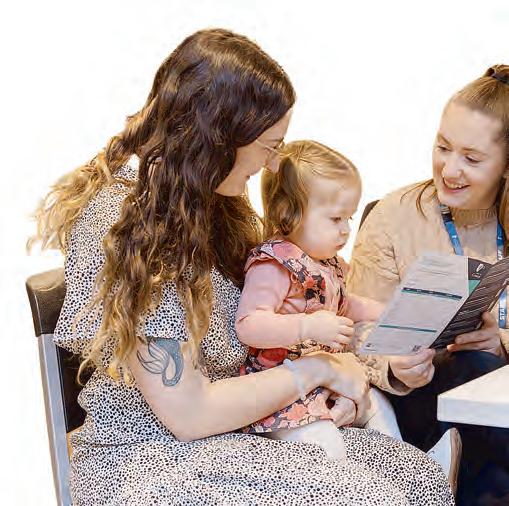
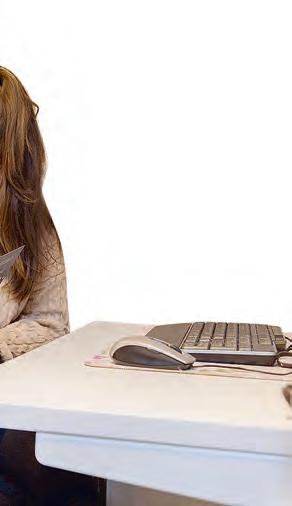
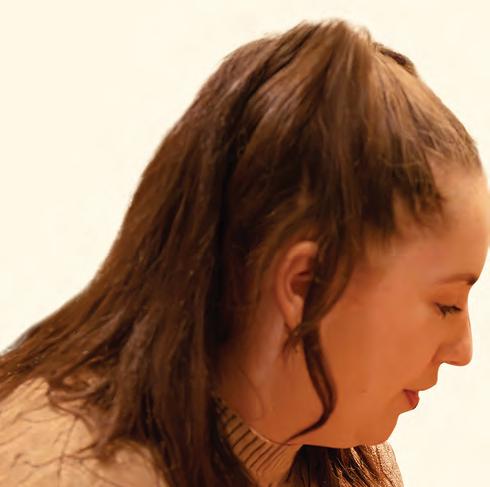
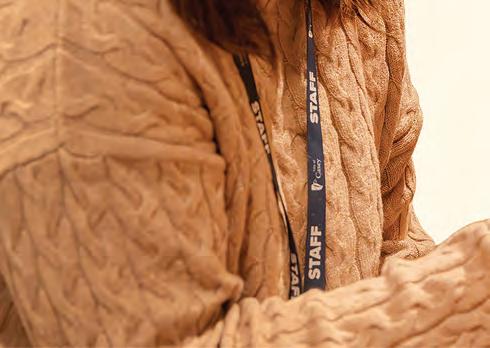
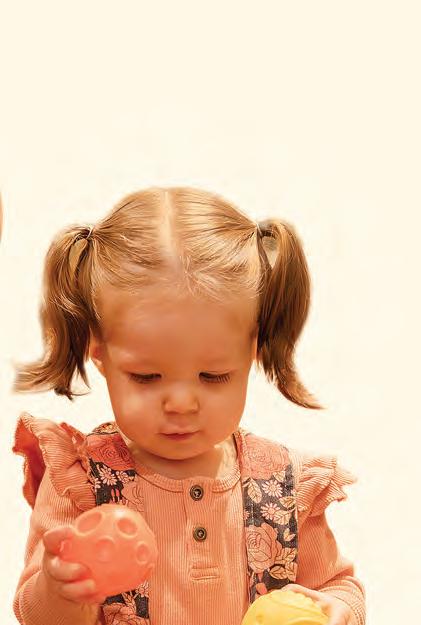
MCH nurse Jessica Coenen with 17-month-old Ruby.
FIVE new consult rooms are further bolstering Casey’s efforts to increase maternal and child health attendance.
The first opened at Mirvac’s Smiths Lane Community in Clyde North in July.
Dillwynia Ward Councillor Anthony Walter said the area was rapidly emerging as one of Casey’s fastestgrowing suburbs.
“This has resulted in an increased demand for our MCH Service,” he said.
Mirvac offered the room to the council for 12 months at no cost.
“The area has limited local centres, so this new room…will allow families in the Smiths Lane and surrounding catchment area convenient access to a vital service whilst awaiting the opening of the future Alexander Boulevard Community Hub,” Cr Walter said.
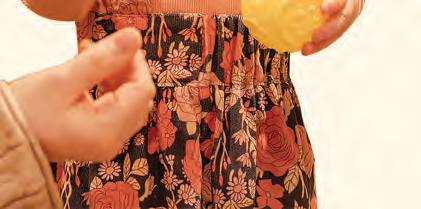
Smiths Lane Community will also be home to a playgroup and a new council-run first-time parent group.
It will meet for five weeks from 22 September and give first-time parents the opportunity to connect, share
experiences, and support each other.
Maternal and Child Health nurse Jessica Coenen will be working out of the new Clyde North consult room.
“Growth is happening quicker than we are able to get funding for buildings,” she said.
“We’re trying to make things work.
“With such a large projection of births, we’re needing more centres.”
She said having a centre within walking distance or a short drive would make life easier for young parents and help to foster community ties.
Casey has also opened another two consult rooms at Narre Warren North Kindergarten and two in Cranbourne West, at Cranbourne West Community Hub and Ecrildoune Homestead.
The consult rooms are open to all Casey residents, not just those who live locally.
Call 9705 5590, Monday to Friday during business hours or visit www.casey.vic.gov.au/maternalchild-health-services.
By Casey Neill
NABULA El Mourid is empowering parents to make better choices at the supermarket.
“I became a mum and suddenly I was responsible for feeding others as well as myself, but I was more time poor than ever,” she explained.
“I couldn’t make my weekly trip to the farmers market and butcher anymore, so I found myself in the aisles of Woolies, but still wanting to make the best choices for my young family.
“I started reading ingredient lists and quickly realised what was in some of the products I was buying on repeat.
“What fascinated me most was that on the same shelf, there was often another product with a simple, recognisable ingredient list.
“Swapping to products made with only real ingredients brought more calm to our home.”
Nabs decided to share what she’d learned through an Instagram account, Supermarket Swap.
“I thought a few friends might find it useful, but it turns out these swaps resonate with hundreds of thousands of people like me,” she said.
Soon, she worked with qualified
Soon she worked with health professionals and food scientists to develop an app where shoppers could find out what the numbers in ingredient lists actually mean, and easily identify additive and preservative-free options.
“We don’t need to obsess over every product we buy, but the truth is, you don’t really know what’s in the food you re buying unless you flip it over,” Nabs said.

“Brands design the front of their packs to make us want to buy them, and it’s only when you take the time to read the ingredient list and nutrition table that you get the full picture of what’s inside.
“It’s also the easiest way to compare products on the shelf, because what’s available can change from store to store.
“A quick look at the back can help you make a better choice without overthinking it.”
Nabs won over budget-conscious shoppers with weekly wrap-ups of better-choice products on special, and added a recipe and meal plan feature in 2022.
The Weekly Grocery Shop is the next step.
“I studied writing at university, and while it was always a dream to write a book one day, I never imagined it would come true!” Nabs said.
Launched in September, it features more than 70 recipes, meal plans, shopping lists, and ideas for snacks, leftovers, and lunchboxes - all developed with health professionals.
“I want people to feel empowered, not overwhelmed,” she said.
“The book is a shortcut to help improve what you eat - quick, easy tools to help you plan better and eat better without spending more at the checkout.
“If you’re already using the app or following

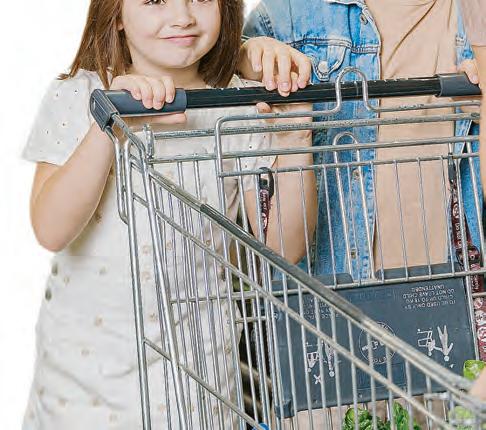

online, the book is like having everything we talk about in one place - all the advice, tips, guidelines, and everything I’ve learned since starting Supermarket Swap.
“Plus, it includes a whole new batch of recipes and meal plans you won’t find anywhere else.
“And if you’re brand new? It’s the perfect starting point to take control of your kitchen, because that begins in
the supermarket.”
Nabs conceded that going all-in on additive and preservative-free shopping could feel overwhelming.
“So I always recommend starting with one or two small swaps at a time,” she said.
“Begin with a product you use every day, like bread or butter, and look for an option made with only real ingredients.”

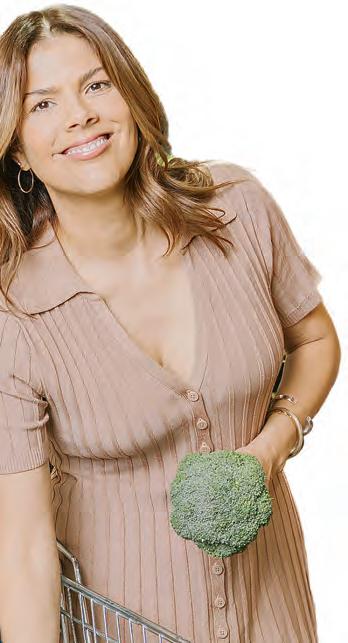
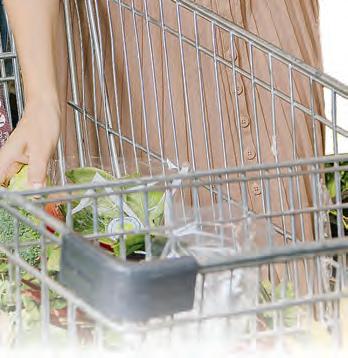




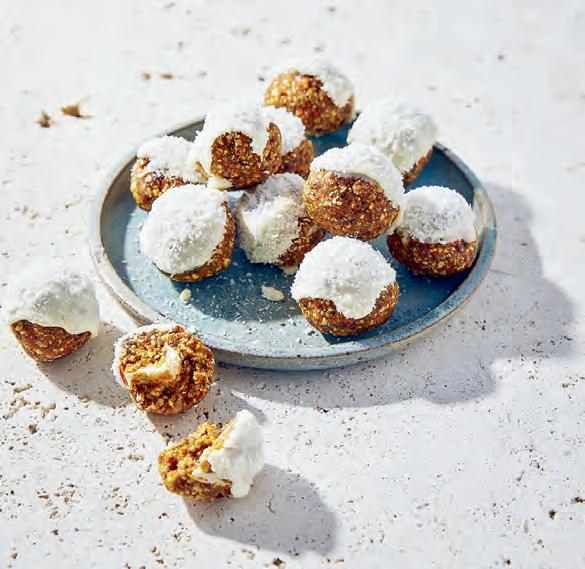

SCARED of giving birth? You’re not alone, but staying positive could ease your fears.
Up to 60 percent of women experience some fear about giving birth, but a new study shows why some women are more likely to stay calm and confident in the lead-up to childbirth.
In a global first, researchers from Robert Gordon University in Scotland and the University of South Australia (UniSA) investigated the factors that helped ease childbirth fears rather than stoke them.
They surveyed 88 pregnant women in their third trimester before attending antenatal classes in north-east Scotland.
Researchers used the WarwickEdinburgh Mental Wellbeing Scale to measure the link between mental wellbeing, a woman’s belief in her ability to manage the challenges of labour, and fear of childbirth.
While 12 percent exhibited ‘severe’ fear of childbirth, those who were more positive, confident, and in meaningful relationships reported fewer concerns.
Lead author Dr Katrina Forbes-McKay said the results showed antenatal care could be improved to foster confidence, enhance positive emotions, and support healthier births.
“While many studies have explored the negative effects of childbirth fear,
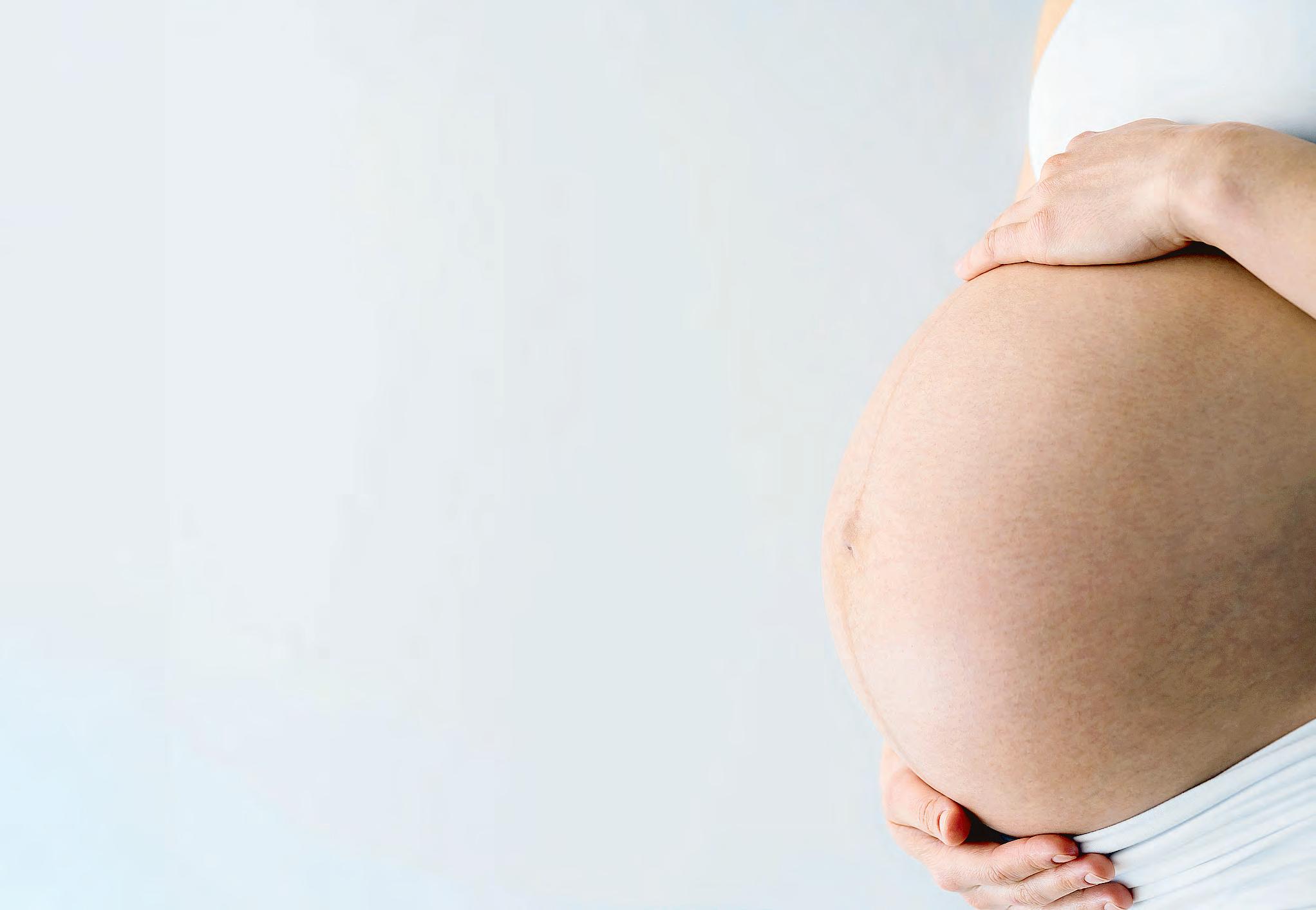
including prolonged labour, emergency caesareans and postpartum mental health issues, there has been little research into what protects women from experiencing those fears,” Dr ForbesMcKay said.
“Our findings highlight the need for antenatal care that doesn’t just teach women what to do during labour, but also empowers them to believe they can do it.”
Co-author, UniSA Professor Tracy Humphrey, said the study found that a woman’s sense of mental wellbeing was the strongest predictor of how fearful she felt about giving birth.
“This includes having a sense of purpose, emotional positivity, and meaningful social relationships – all things that are often overlooked in maternity care,” Prof Humphrey said.
The study called for antenatal programs to shift from a solely medical model to one that builds self-belief, recommending that childbirth education:
■ Foster confidence in labour techniques such as breathing, visualisation, and relaxation;
■ Enhance psychological wellbeing by supporting social connection, purpose, and satisfaction; and
■ Embrace an approach focused on wellness rather than risks.
Robert Gordon University midwifery lecturer Dr Mo Tabib led the study as part of her PhD, under the supervision of Dr Forbes-McKay and Professor Humphrey.
“By addressing fear of childbirth through psychological and educational interventions, we not only support women to have more positive birth experiences, but potentially reduce medical interventions and improve outcomes for mothers and infants,” she said.
The researchers are now calling for larger, multi-site studies to validate these findings across diverse populations.
(iStock)
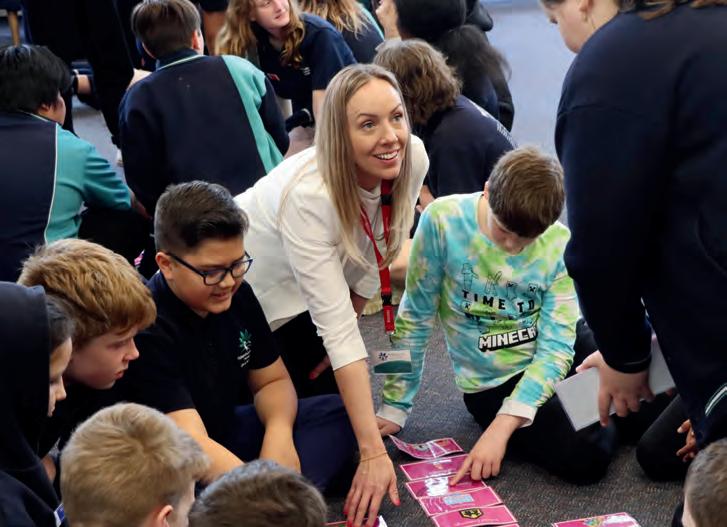

RENEE Heath has taken the State Government to task after Victoria Police admitted it could not notify women when violent ex-partners were released from prison because it lacked the resources.
“The coroner recommended that Victoria Police notify women when violent partners are released from prison, a simple and life-changing reform, yet VicPol has admitted it cannot deliver this due to lack of resources and that the government has taken no action to implement the recommendation,” Ms Heath told parliament.
The Eastern Victoria Region MP asked the Minister for Prevention of Family Violence, “Can you confirm whether the government will act on the coroner’s recommendation, and what steps are you taking to ensure that victims in my electorate are notified when their abusers are released?”
Victoria Police formally rejected the recommendation following the horrific murder of Noeline Dalzell, who was stabbed to death by her ex-partner after he was released from custody without her being notified.
Ms Heath said the government continued to show up at rallies and speak on panels about women’s rights.
“But when it comes to implementing something as basic as
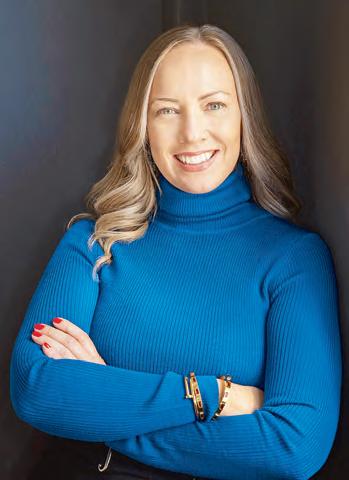

notifying a woman that her violent ex-partner is being released from prison, they’ve failed,” she said.
Ms Heath said police were being asked to do more with less and victims were paying the price.
“This isn’t about funding another glossy report,” she said.
“It’s about doing the basics right: protecting women, resourcing police, and getting serious about community safety.”
By Violet Li
MURRUMBEK Casey Early Parenting Centre has become a vital lifeline for new families in this growing region.
Since its official opening in January 2024, the free wellness service in Clyde North has already supported more than 1000 families, offering them the care they need during the often-challenging early years of parenthood.
Lauren Savva, the acting nurse manager, recalled the centre’s beginnings and how quickly
community hub.
“There is quite a demand for the service,” she said.
Ms Savva said the centre provided individualised support for families to achieve their goals.
“Families will come in with a huge range of different goals, and that could be from sleep and settling, learning to understand some behaviours. It could be feeding support, and that could be from the baby, like breastfeeding, bottle feeding, or introducing solids,” she said.
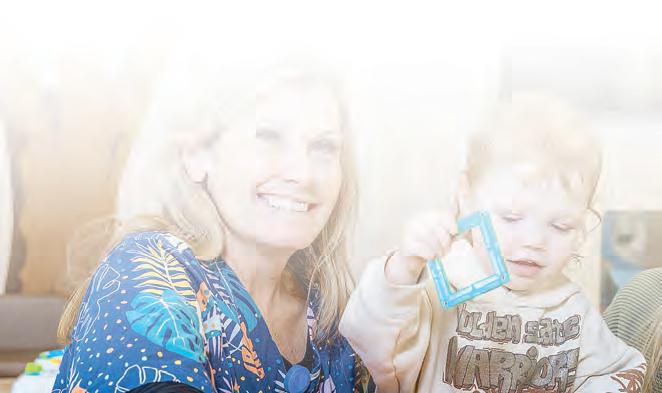
“Depending on what the family’s goals are, we will do an individualised
during the week, we support them through achieving that goal.
“We’ll do education sessions with the families as well, and then if there’s any more information they need, we do one-on-one education sessions as well.”
Delivered by the State Government in partnership with Monash Health, the centre provides a range of services including day stays, overnight stays, and telehealth support.
Families can access a range of programs: a residential program, which offers 10 private rooms with ensuite bathrooms; a day stay program for three days of the week, which has four separate rooms, each with its own cot, where parents can settle their babies with one-on-one support from staff; a sleep-settling program for babies aged four months to 12 months; a newborn program aimed at infants aged zero to three months; a home visiting program; and telehealth.
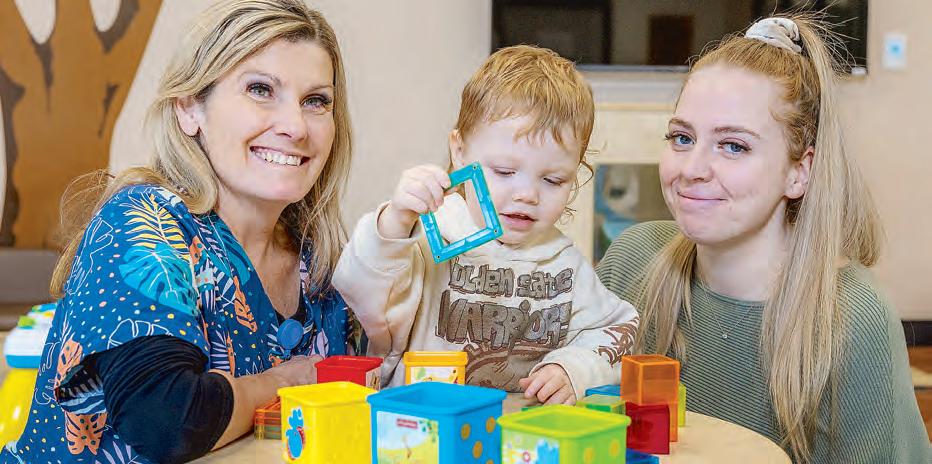


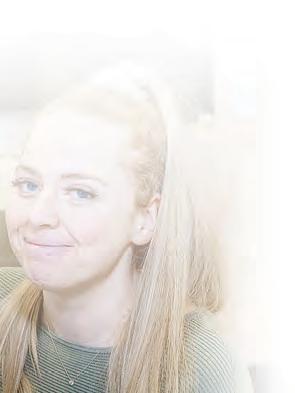
All programs are free and can be accessed via self-referral or through a GP or maternal child health nurse.
The centre has a team of nurses with different backgrounds, including paediatrics,
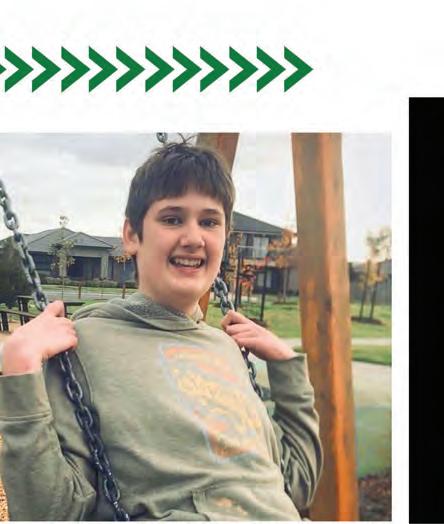

newborn and mental health, midwifery, maternal and child health, social work, play therapy, speech therapy, and dietetics.
“Depending on the family’s needs or supports there, we can also offer those services to further enhance the patient experience,” Ms Savva said.
Ms Savva said the wait list for a day program was about five weeks.
For the residential program, it varies between six to 10 weeks.
“We’re constantly working on improving the service and how we can reduce the wait times to come into the program,” she said.
“We also collaborate with other early parenting centres to make sure that our families get the support they need as soon as they can.”
Every month, the centre shares a success story. This month’s story stood out for Ms Savva.
Written from the perspective of a baby, the story captured the impact of the centre’s work.
“I’ve been co-sleeping with Mum and Dad since I was born. This week, I learned to sleep on my own in a cot, and my parents learned to understand my behaviours and body language. Thank you to the amazing staff for being so patient with me,” the parent wrote.
Visit monashhealth.org for more information.



TEACHING children personal safety strategies can help them build confidence and resilience and help keep them safe.
Child protection organisation Bravehearts is dedicated to the coordinated and holistic prevention and treatment of child sexual abuse.
“One of the most important things we can do as a parent or carer is help our children understand and identify when something doesn’t feel right or safe, and to talk to a trusted adult without fear of consequences,” Bravehearts says.
“This is what teaching children personal safety is all about.”
Teaching personal safety can reduce the likelihood of a child entering into an unsafe situation, and interrupt or prevent grooming.
It shows the child how to respond to an unsafe situation and increases their sense of confidence and resilience, knowledge of their personal rights, and the likelihood they will speak out if they feel unsafe.
Bravehearts says parents should instill the following three personal safety rules
in their children:
We all have the right to feel safe with people.
This rule teaches children and young people that they have the right to feel safe and secure where they live, play, and learn and that no one has the right to make them do something that makes them feel unsafe or unsure.
It’s okay to say ‘no’ if you feel unsafe or unsure.
This rule teaches children and young people that it is okay to stand up for themselves and to be assertive if something doesn’t feel right.
Nothing is so yucky that you can’t tell someone about it.
One of the reasons that children and young people fail to disclose harm is they’re afraid of getting into trouble. This rule helps to encourage them to speak to a trusted adult, even if something seems scary or terrible.
Speaking with your child about personal safety should not be a one-off conversation, Barvehearts says.
Rather, create opportunities that allow
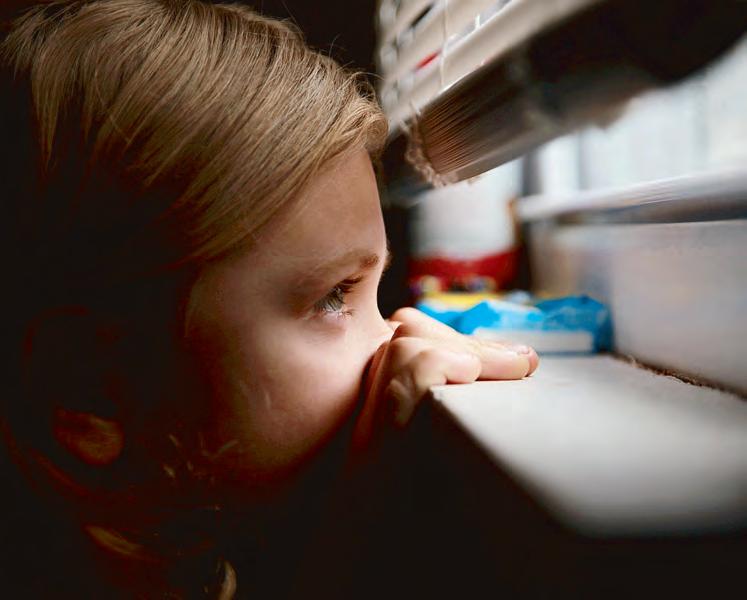

talking about personal safety to be part of an ongoing dialogue between you and your child.
Always let your child know you are there for them, and keeping them safe is your number one priority.
Never make them feel ashamed or embarrassed about sexuality or body parts. Teach them the correct language for private parts of the body and emphasise that they’re private and belong only to them.
“Speak calmly and confidently, keeping a neutral, natural tone, ensuring that you allow time for your child to process the information and ask questions,” Bravehearts says.
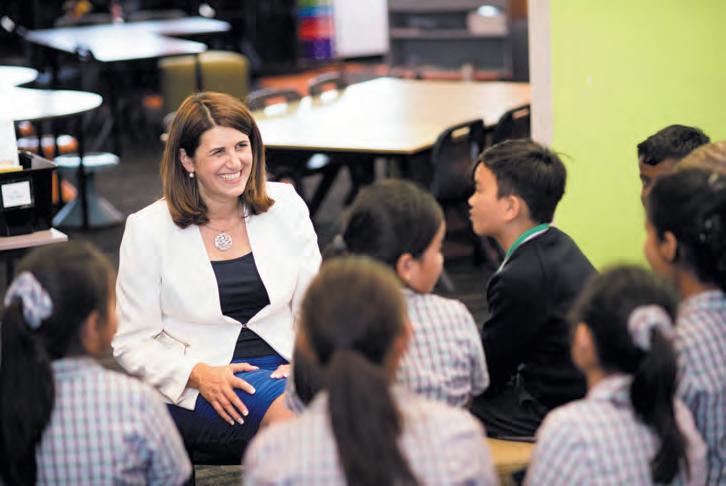


Online safety is important too.
“Teach your child never to give out their last name, address, or phone number to a person on the internet and never to meet internet friends in person without a parent’s supervision and consent.”
Their screen name should not disclose information about their location, and tey should not post pictures in their school uniform.
“Always keep your computer in a public area of your house – not in a child’s bedroom.”
Call the Bravehearts Information and Support Line on 1800 272 831.
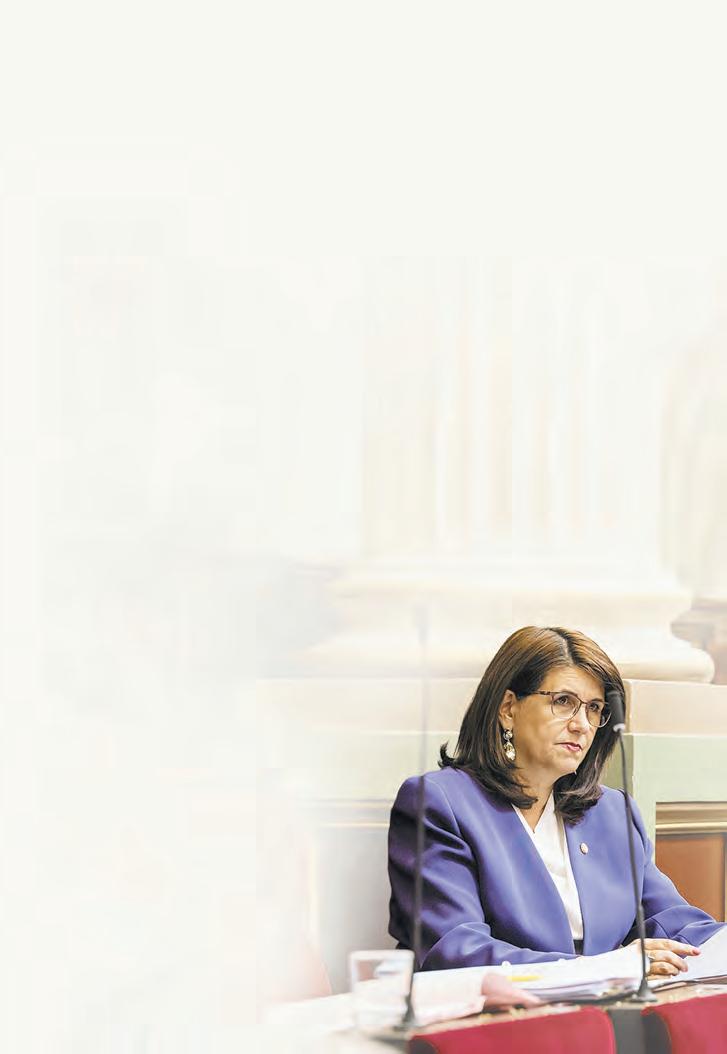
THE public exposure of alleged paedophile childcare worker Joshua Brown was a watershed moment for Victorians.
Brown worked in at least 24 childcare centres and faces more than 70 charges. Two thousand children were sent for STI testing.
Clearly, our childcare system is fundamentally broken and, as a mother, I could not be more dismayed.
Recently, the Opposition introduced a bill to overhaul the Working With Children Check (WWCC).
Labor voted it down.
The same government that tells us how to live our lives couldn’t bring itself to back straightforward legislation to keep our kids safe.
But we’ll continue pursuing reform.
A Battin Liberal Government would introduce:
Stronger screening - Tightened processes and records of WWCC holders and up-to-date evidence of training.
Transparency - Parental access to centre safety data, an independent star rating system of centres, and a pilot program of parent advisory groups to guide policymaking.
Workforce quality - A register of educators, improved training, psychometric testing for new workers, and strengthened whistle-blower protections.
Independent oversight - A new statutory authority to investigate and report to Parliament.
Technology safeguards - A ban on
personal phones during shifts, and CCTV in all early learning centres.
Federal cooperation - Linking federal childcare subsidies to safety performance.
In the Legislative Council, the Liberals successfully passed a motion with bipartisan support to refer the performance of the childcare regulator for investigation by the Victorian Ombudsman.
One of the most important duties of any government is to protect children.
While we can’t eliminate all risk, the recently exposed systemic failures showed that action must be taken now.
And that’s exactly what the Liberals are fighting for.
- Ann-Marie Hermans, South Eastern Metropolitan Region MP
By Casey Neill
AFLW star Libby Birch is moving the goal posts for Australian girls, releasing the first children’s book about female footballers.
The North Melbourne player’s greatgrandfather pulled on the boots for AFL club St Kilda, so she grew up supporting the Saints. Yet she still overlooked footy when it came to taking up a sport.
“I remember my dad saying, ‘you can’t play footy because there’s no elite level for girls’,” Libby said.
“So I fell in love with netball. I could actually see women playing on the bigger stage. That made it real for me.
“If I knew I could play football at the highest level…”
Writing Libby’s Footy Adventures is one way the physiotherapist is working to change this narrative for future generations.
A friend tried to buy a picture book for a footy-loving girl back in 2023 but could only find stories featuring male players, so Libby set about spotlighting a female footy star.
“Girls deserve to see themselves in stories where they’re not just participating, but leading, thriving, and being celebrated,” she said.
“I chose to write for children because that’s where confidence, identity, and belief really start to grow.



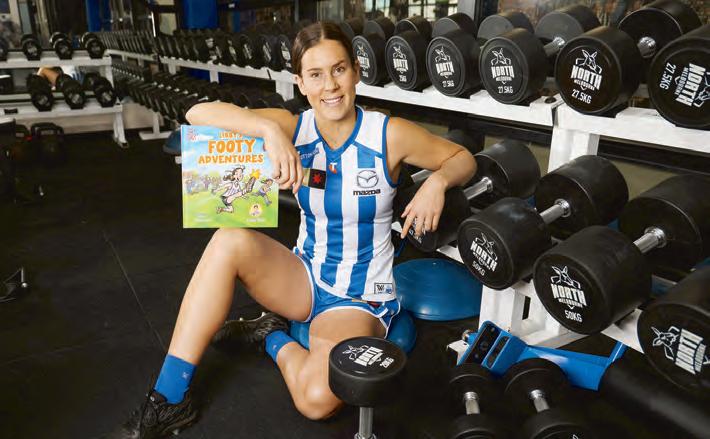
“This age group is full of imagination, energy and possibility - they’re just beginning to dream about who they are and what they might become.
“And sport, particularly footy, can play such a powerful role in shaping that journey.”
Libby said footy might become a lifelong passion or career for some kids.
“For others, it may simply be a joyful, grounding part of childhood - a place where they feel safe, free, and connected to others,” she said.
“That’s just as valuable.”
Libby worked closely with illustrator
Robin Tatlow-Lord to shape not just how the book looked, but how it felt.
“Every young girl or woman’s body type is their own and has their own strength and power,” she said.
“W visually shows that, week in, week out.
“In the men’s comp, everyone looks the same. In W, you’ve got so many shapes and sizes and they all do incredibly amazing things on the football field.”
Libby’s talent on the netball court took her to the Victorian and Australian institutes of sport, and caught the eye of
former AFLW player and current coach Daisy Pearce in 2016.
“She messaged me out of the blue to say ‘I’ve heard you’re an elite athlete and might be interested in playing footy’,” she said.
Libby had never even kicked a footy but eventually joined Daisy at her local club, the Darebin Falcons, to give the sport a go.
Daisy lent Libby her bright orange footy boots, which feature in the book.
“The moment I stepped into those boots, I felt part of something so much bigger than myself,” she said.
“I was in awe of what these amazing footy players had done and what they’d continued to push for, even though there was no elite level.
“That’s why the book’s dedicated to them.
“They fought for something they couldn’t even see.
“Today, we’ve got all these young girls that can have a full pathway into the AFLW.
“I’m really excited about where W can go going forward.”
The 27-year-old hasn’t missed a game since the inaugural season and has won three premierships with three different clubs.
“It’s been a wild ride. I’ve loved every minute of it,” she said.













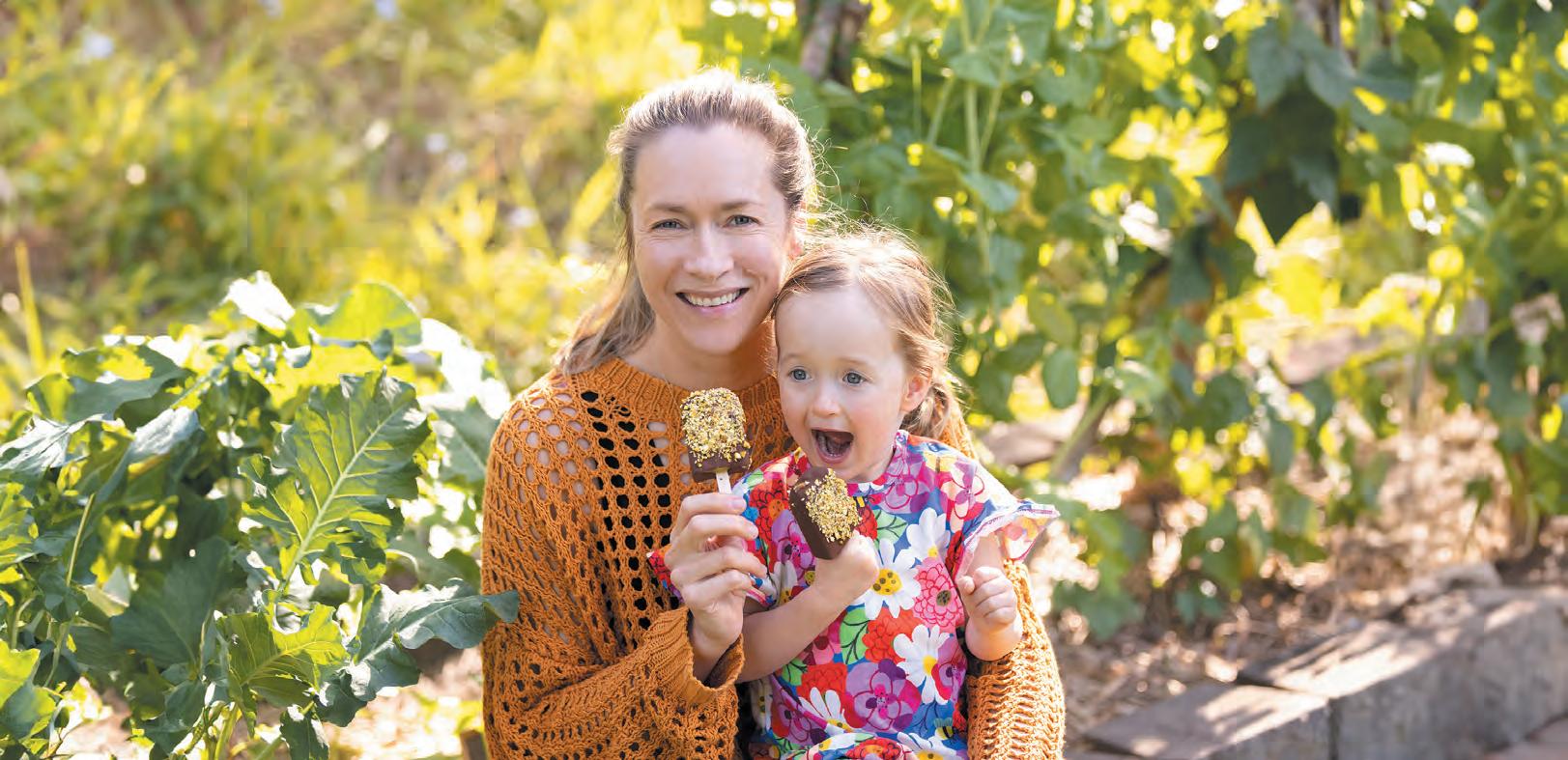




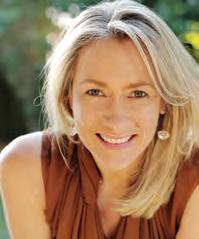
I’M not usually one to follow viral food trends, but when it came to creating something sweet for the kids this as the weather warmed up - and with pistachio being my favourite ice cream flavour - I couldn’t resist jumping on board this one.
This recipe is my nourishing, kid-friendly take on the Dubai chocolate that’s taken over social media.
Instead of pastry and rich fillings, I’ve created a cool, gluten-free, creamy ice cream using just a few nourishing ingredients.
Bananas give the ice cream a naturally sweet, creamy base and they’re also a great natural energy source and packed with potassium and fibre.
Coconut milk provides nourishing fats that support growing brains.
Pistachios add protein, fibre, and a generous dose of vitamin B6, important for keeping tummies full, and for mood
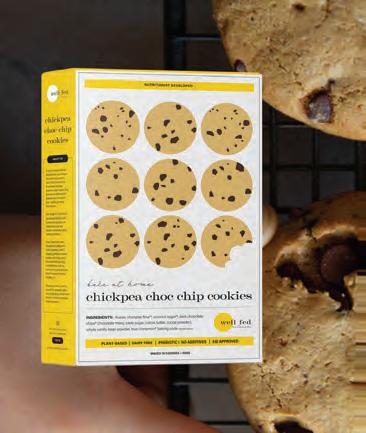
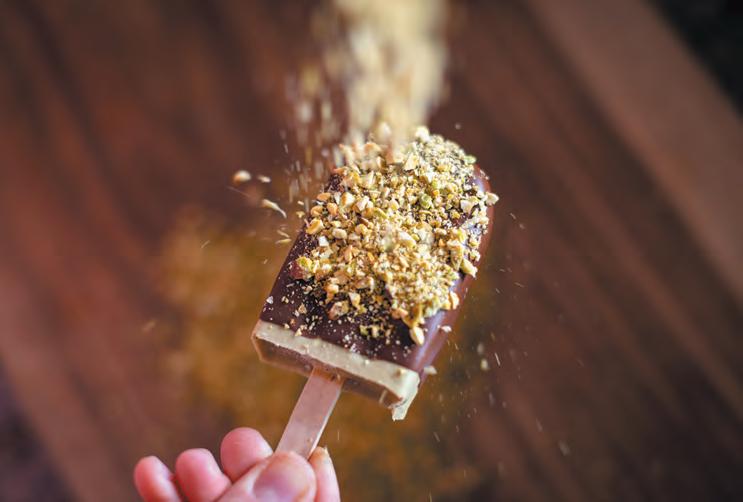

and immune system support.
Toasted coconut (instead of kataifi pastry) brings the crunch and adds even more fibre.
You don’t need an ice cream maker - just blend, pour into icy pole moulds, freeze, and let the kids take care of the fun part: dipping in melted chocolate and decorating with crushed nuts.
If pistachio butter isn’t in your pantry, then almond or peanut butter are great
(and more budget-friendly) substitutes that give a delicious banoffee pie flavour twist.
This is one viral trend I’m happy to make my own. It’s fun, nourishing, and freezer-friendly - a perfect sweet project for little hands and chocolate-smeared faces.
Visit www.lucystewartnutrition.com or follow @lucystewartkidsnutrition for more recipes.

Makes: 9
Prep time: 10-mins
Cool time: 6+ hours
Ingredients:
■ 1 ripe banana
■ 1 can (400ml) coconut milk
■ ½ cup toasted shredded coconut
■ 2 Tbsp maple syrup
■ ¼ cup pistachio butter
■ ¼ cup protein powder or collagen (optional)
■ Dark chocolate, melted (for dipping)
■ Crushed pistachios (for decorating)
Instructions
1. 1Blend banana, coconut milk, toasted coconut, maple syrup, pistachio butter, and protein powder (if using) until smooth and creamy.
2. Pour the mixture into icy pole moulds and freeze until solid (at least six hours or overnight).
3. Dip frozen ice creams in melted dark chocolate and quickly sprinkle with crushed pistachios before the chocolate sets.
4. Enjoy immediately or store in the freezer for later.
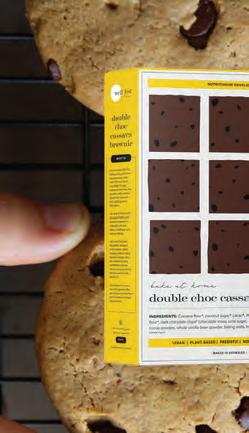

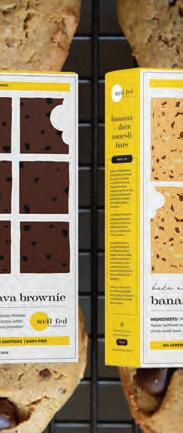
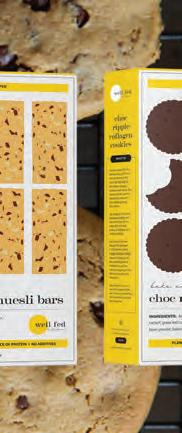



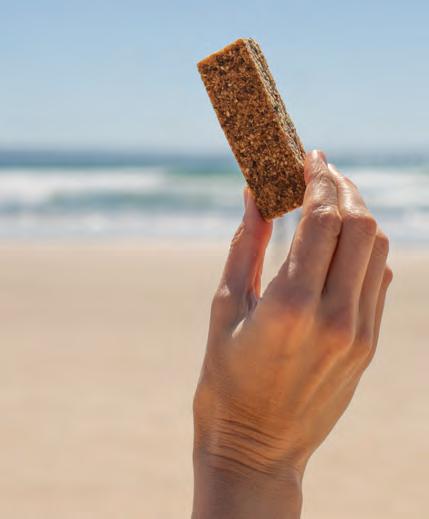

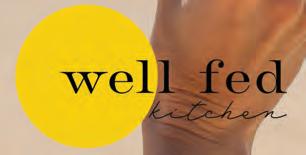
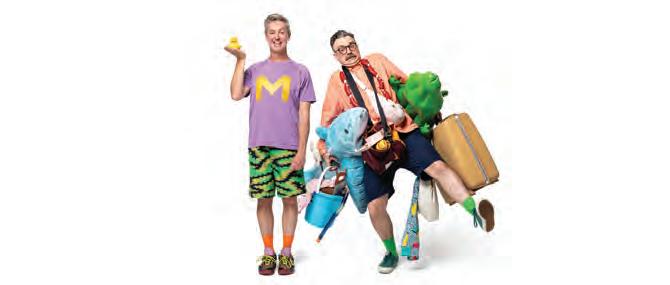


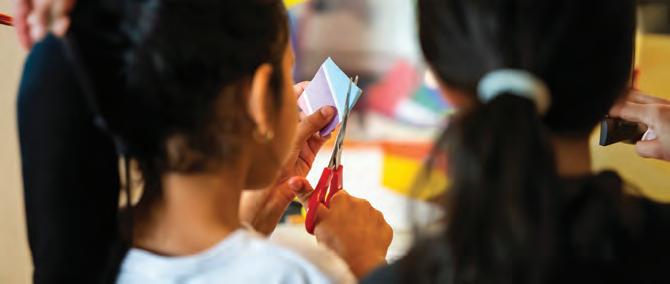

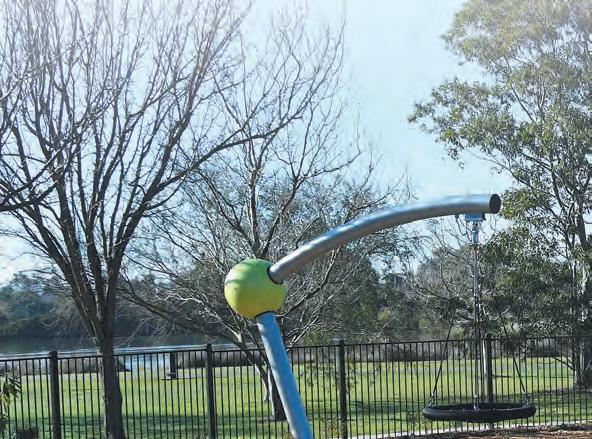




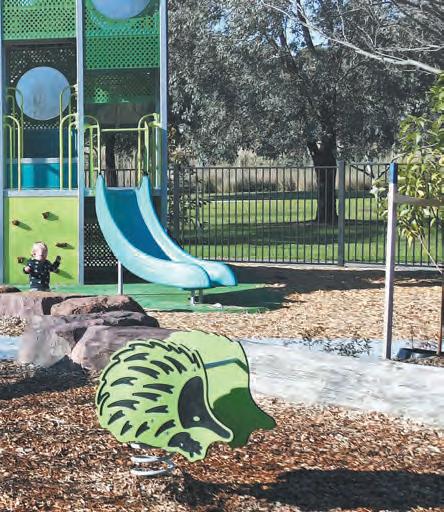

COMMUNITY feedback shaped a fresh new look for a Narre Warren South playground.
The Berwick Springs West Playground, on The Esplanade, was revamped through the City of Casey Playground Renewal Program with a design for all ages and abilities.
“The previous play space had reached the end of its life, and it was time for a fresh start,” Councillor Shane Taylor said.
“We reached out to our wonderful community for your ideas, and you delivered!
“Your feedback shaped the draft concept, which was refined further with your input to create this fantastic new playground.”
The space now boasts a nature-themed play tower, slides, swings, a spinner, and climbing equipment.

There are new seating areas and a shelter space with a barbecue and picnic setting for refueling during play dates.
Garden beds and trees are new additions alongside a new drinking fountain, upgraded fencing, and a fresh gate for added safety.
Our photographer Stewart Chambers captured little mates Luke and Noah.
Have you put the new space through its paces? Let us know what you think!
You can also share your favourite play spaces in Casey and Cardinia, or volunteer for our next playground photo shoot.

Find us on Instagram and Facebook or email casey.neill@starnewsgroup.com.au.

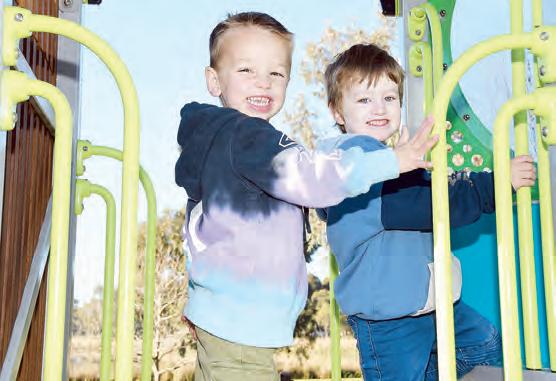
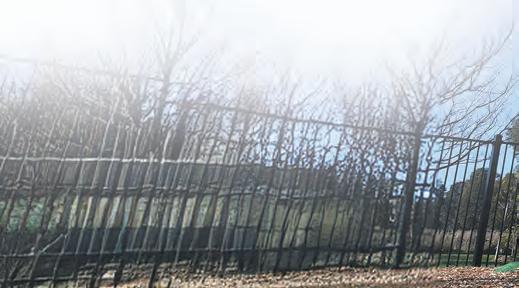
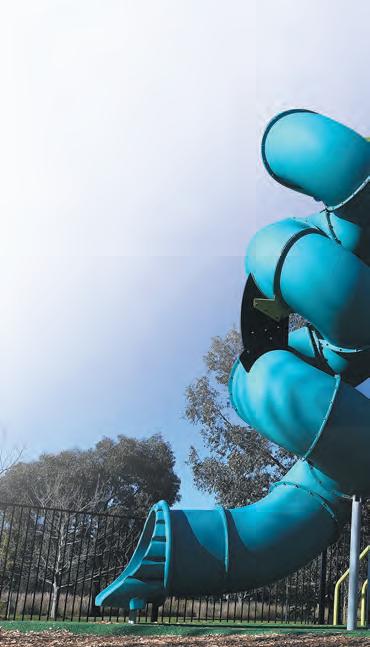


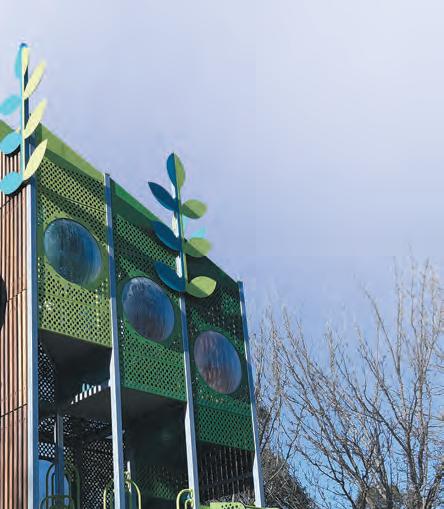
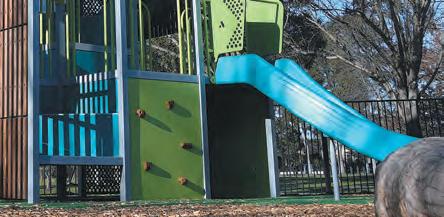
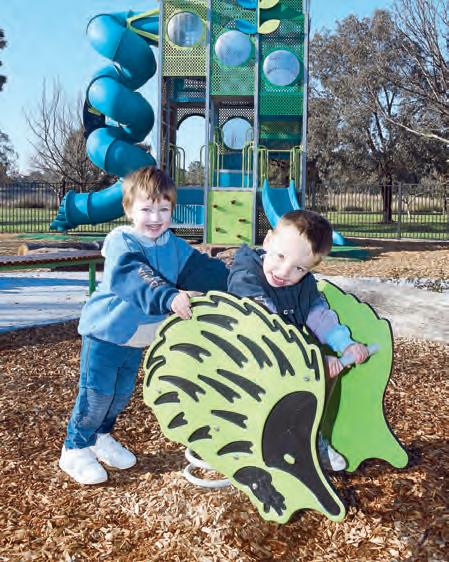


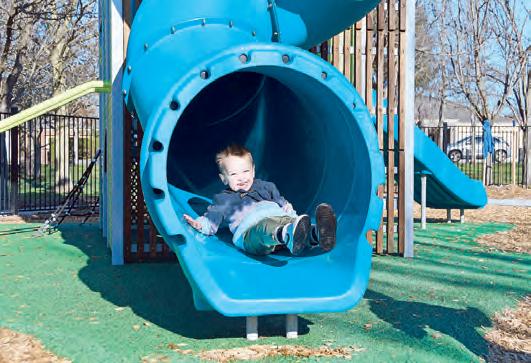
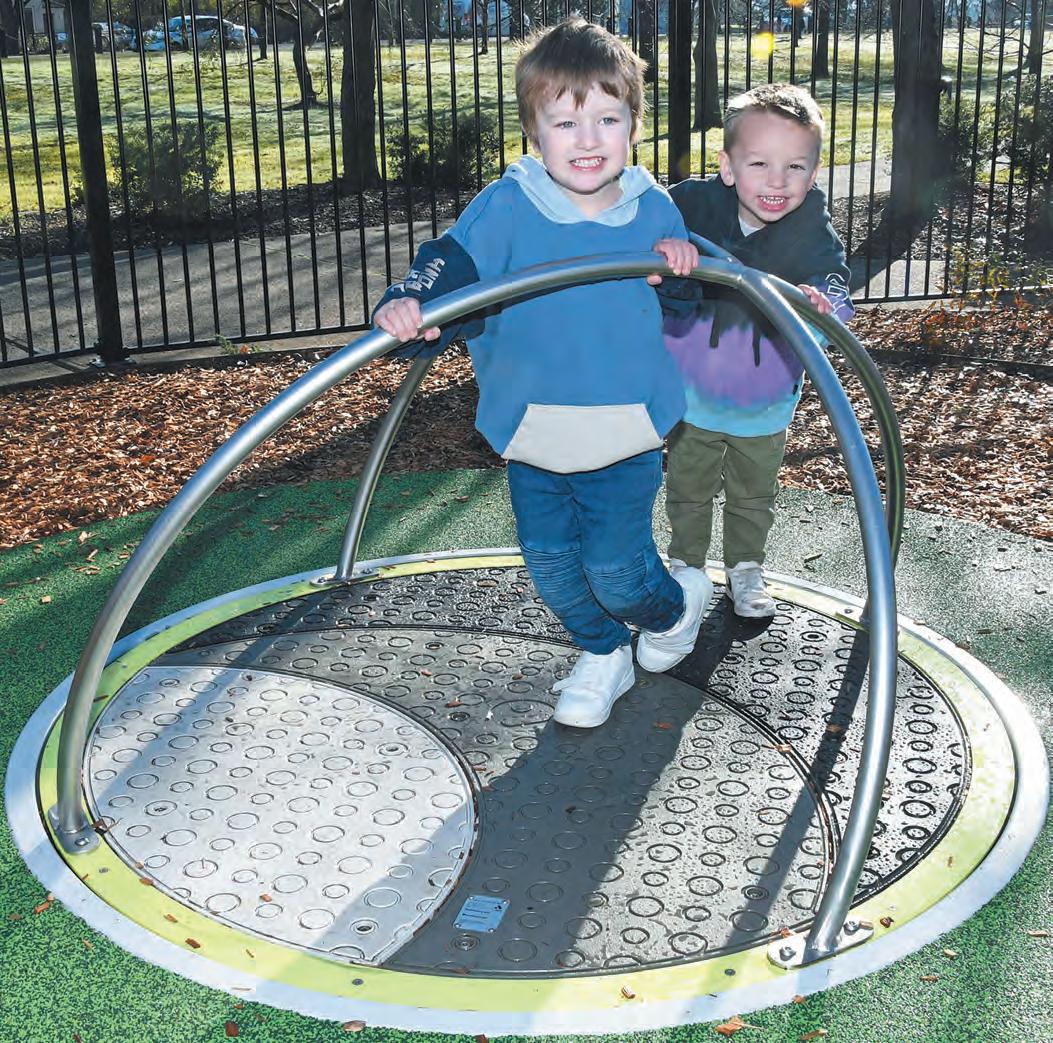
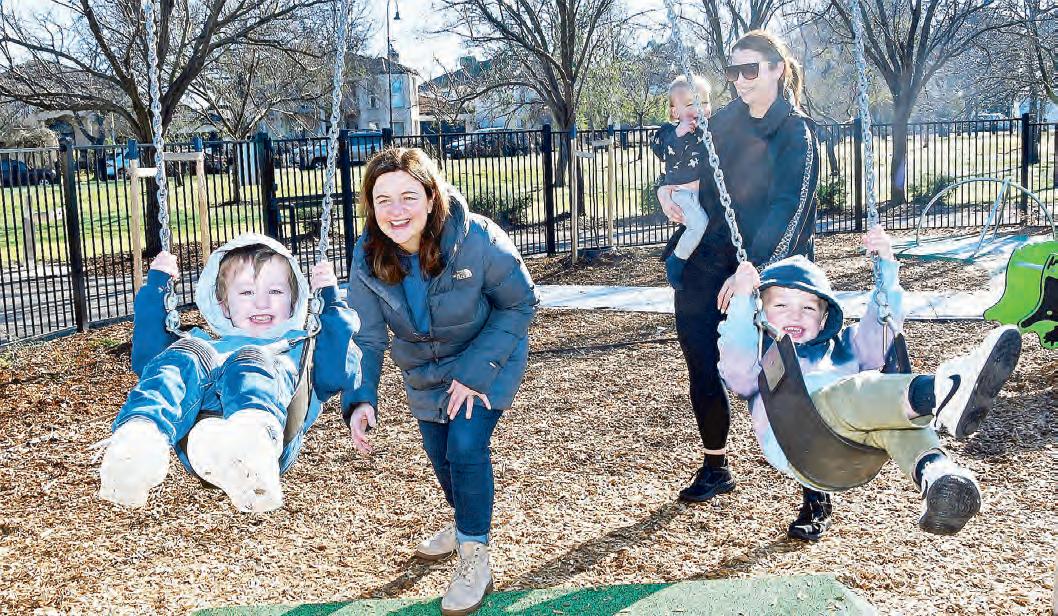

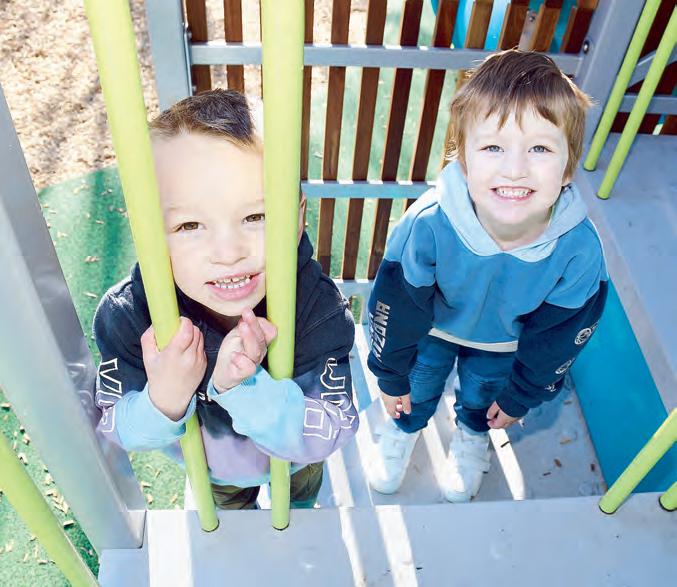
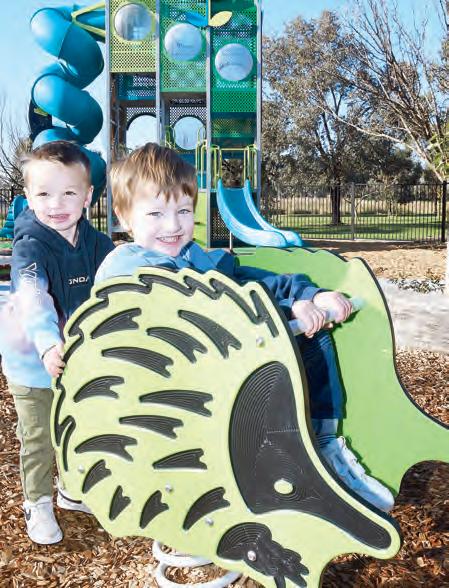



BREASTFEEDING mums are at risk of silent nutritional deficiency, says a clinical nutritionist and food scientist.
Kristy Petersen said omega-3 and vitamin D deficiencies during lactation were more common than most people realised.
When a breastfeeding mother doesn’t consume enough omega-3 fatty acids, particularly docosahexaenoic acid (DHA), her body will draw on its own stores, often from the brain and eyes.
“This can leave the mother depleted, leading to increased fatigue, mood disturbances, poor immune function, and even longer-term cognitive issues,” Kristy said.
“Unfortunately, the signs of nutritional depletion are not overtly obvious.”
For babies, omega-3s are essential for healthy brain, eye, and nervous system development.
Insufficient DHA in breast milk has been associated with slower cognitive growth, reduced visual acuity, and potential behavioural challenges in early childhood.
“Many women avoid oily fish, don’t supplement, or simply don’t know how critical omega-3 intake is while breastfeeding,” Kristy said.
“It’s a hidden nutritional risk with long-lasting effects.”
Ensuring adequate DHA intakeabout 200 to 300mg per day - can protect both mother and baby from deficiency-related complications.
“Whether through carefully chosen food sources or supplementation, omega-3s should be a non-negotiable part of every breastfeeding mum’s diet,” Kristy said.
“It’s not just about milk supply or calories, it’s about the right nutrients, at the right time, in the right form.”
Kristy said vitamin D was also essential for breastfeeding mums.
“Many mothers don’t eat enough vitamin D-rich foods and aren’t supplementing. They simply don’t know they’re at risk,” she said.
“Low vitamin D can cause severe fatigue, increased postnatal depression risk, poor calcium absorption, and long-term consequences like osteoporosis.
“Because vitamin D is fat-soluble, if a mother was already deficient before pregnancy, breastfeeding will deplete her even further.”
Kristy said that during breastfeeding, a mother’s body was their baby’s only source of vitamin D.
“If she’s deficient, the baby is too, and that can lead to developmental delays, weakened bones, impaired immunity, and increased disease risk
later in life,” she said.
Kristy said nutrition management wasn’t something new mothers should activate once they started breastfeeding, but prior to conception, during pregnancy and breastfeeding, and after breastfeeding ended.


“Put simply, nutrition doesn’t stop being important just because breastfeeding does.
tsaoudatooaotes


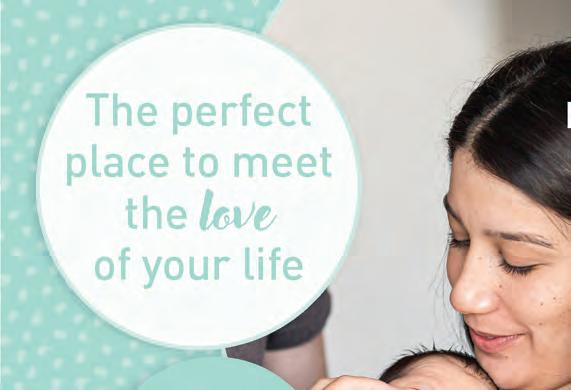
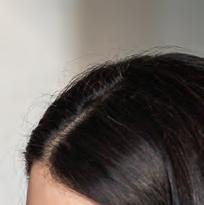
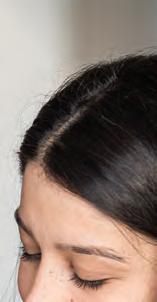
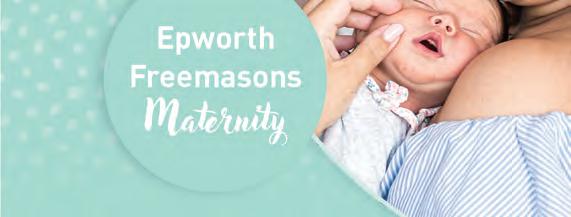



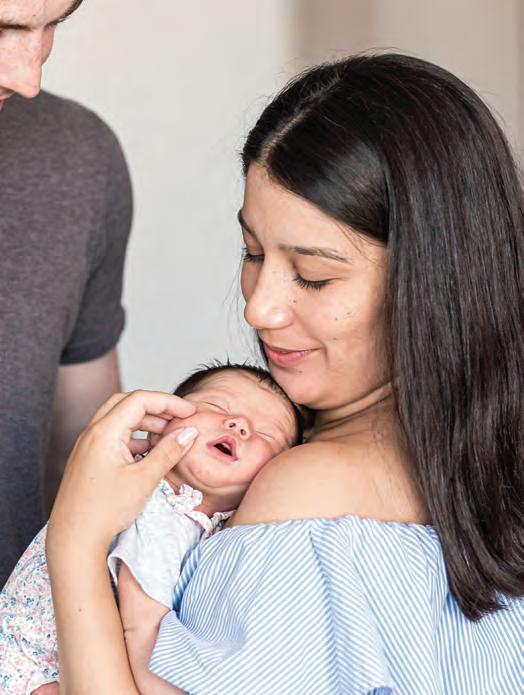

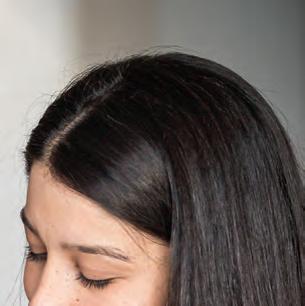
“Pregnancy and breastfeeding place significant demands on a woman’s nutrient stores, especially iron, calcium, DHA, iodine, and B vitamins.
“After weaning, mothers often experience ongoing hormonal shifts, fatigue, and sometimes disrupted sleep, all of which can affect energy levels, mood, and overall wellbeing.
Nutritionist Kristy Petersen with Asha. e started rior to pregnancy and after d.


“Nutrition remains critically important for mothers even after breastfeeding has ended because their bodies are still in a recovery and rebuilding phase,” she said.

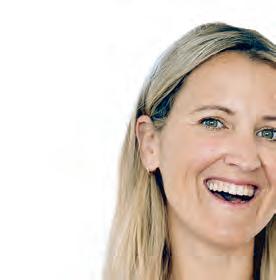
ns ers even has r y and he said. s
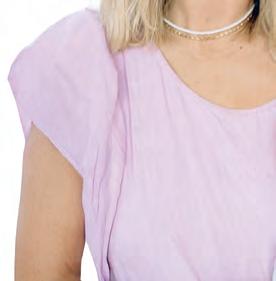
“It’s a foundation for a mother’s ongoing vitality and wellbeing.”
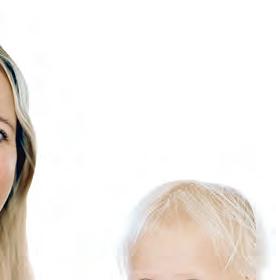
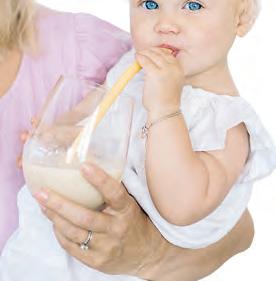

UNIQUELY U Support Services is a locally owned and operated business proudly servicing the south-eastern suburbs.
We would like to formally introduce ourselves: our names are Jane and Amy and we are the founders of Uniquely U Support Services.
We both have extensive experience in the disability sector, with a combined total of 20-plus years’ experience.
Our therapeutic animal sessions provide meaningful interaction with our friendly Highland cows, horses, lambs, and baby chicks, offering a calming environment to support emotional wellbeing.
Call Jane on 0478 795 970 or Amy on 0421 001 934, email uuss@outlook.com.au, or visit tinyurl.com/Uniquelyuss.
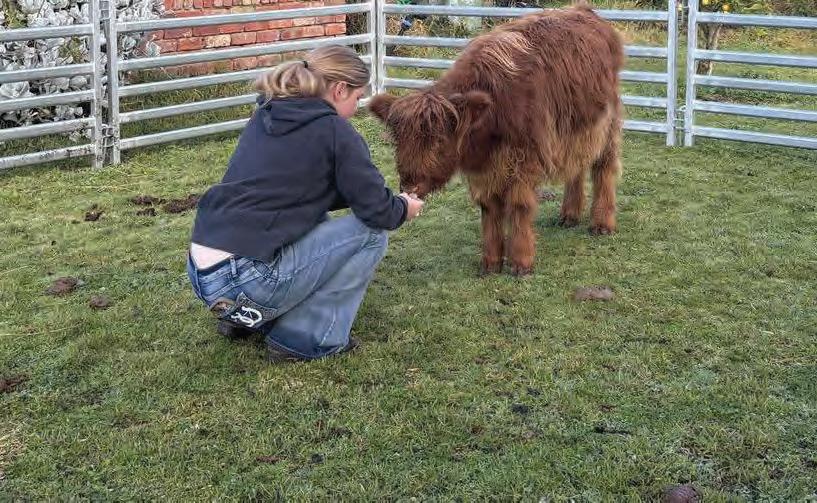
NEW mums with ADHD are at higher risk of perinatal depression and anxiety (PNDA).
Gidget Foundation Australia said one study found a quarter of new mums with ADHD were diagnosed with anxiety during the postpartum period, and one in five with depression.
The research also noted that new parents with ADHD might experience higher levels of stress during their baby’s first year compared to those without.
Ensuring more parents can access neuro-affirming support can help reduce these risks.
“Expectant and new parents have multiple touchpoints with healthcare professionals throughout their conception and early parenting journey, and it’s important that parents with ADHD feel understood by their practitioners and their specialist needs,” Gidget Foundation Australia clinical services manager Dr Erin Seeto said.
“In addition to clinical care, peer support has also been shown to be effective in reducing perinatal mental health difficulties.
“However, mothers with ADHD may not find this connection within new mothers’ groups, so hearing stories from other parents with lived experience can help them feel validated and less alone.”
Gidget Foundation Australia ambassador Aviva was diagnosed with ADHD while she was receiving treatment for PNDA.
The mum-of-three started experiencing severe anxiety attacks when she was about 21 weeks pregnant with her third child, and says she felt like a different person overnight.
“I hadn’t experienced mental illness before, but these emotions paralysed me from head to toe,” she said.
“I was determined to find answers to what I was experiencing, and the more I researched online, the more I realised how common PNDA was and how many women were suffering in silence.” After giving birth, Aviva spent three weeks in a mother-baby unit to continue receiving treatment.
“I knew deep down that there was something more going on, because I was experiencing additional symptoms beyond those of PNDA,” she said.
“From emotional dysregulation to sensory overload, I kept a journal to make note of everything, which eventually led to an ADHD diagnosis.
“Through this, I discovered that the struggles I was having on top of PNDA hadn’t just recently appeared, but they had become harder to mask.
“The more I became educated, the more I learnt that ADHD and PNDA are closely interlinked.
“I think it’s important that all parents are educated on how to differentiate between the two and their symptoms, to make sure they can advocate for themselves and seek out the right help.”
THIS year’s cold and flu season has hit harder than usual, and it’s not over just because the weather is warming up.
Across Melbourne, including here in Springvale, we’re seeing a noticeable spike in cases, with many people falling ill earlier and more severely than in previous years.
After a few quieter years of mask-wearing and social distancing, our immune systems haven’t had as much exposure to seasonal viruses.
The good news? There’s plenty you can do to protect yourself and your family.
Start with prevention.
The flu vaccine is one of the best tools we have. It’s safe, quick, and available right now at most pharmacies and GP clinics.
It’s also free for eligible groups, including children, people over 65, pregnant women, and those with chronic health conditions. Talk to your pharmacist or GP to check if you qualify.
If you do feel unwell, pick up a rapid antigen test kit to rule out the four most dangerous viral infections - influenza A, influenza B, RSV and Covid.
Stay hydrated. It’s easy to forget to drink water, but hydration is especially important when you’re unwell.
Fluids help loosen congestion, soothe a sore throat, regulate body temperature, and prevent dehydration - especially if you have a fever.
Manage flu symptoms safely. For cough, congestion, body aches, or


fever, a range of medicines can help, like decongestants, cough suppressants, or pain relievers such as paracetamol and ibuprofen.
Supporting your immune system with supplements like vitamin C, zinc, or echinacea can also be beneficial, particularly when taken early.
But not all products suit everyone, so always speak to your pharmacist to check what’s safe, especially if you’re on other medicines or have a health condition.
And don’t push through! Rest is essential for recovery.
Taking time off work or school helps you get better faster and protects others around you.
Pharmacies and GPs can provide medical certificates if you need time to rest at home.
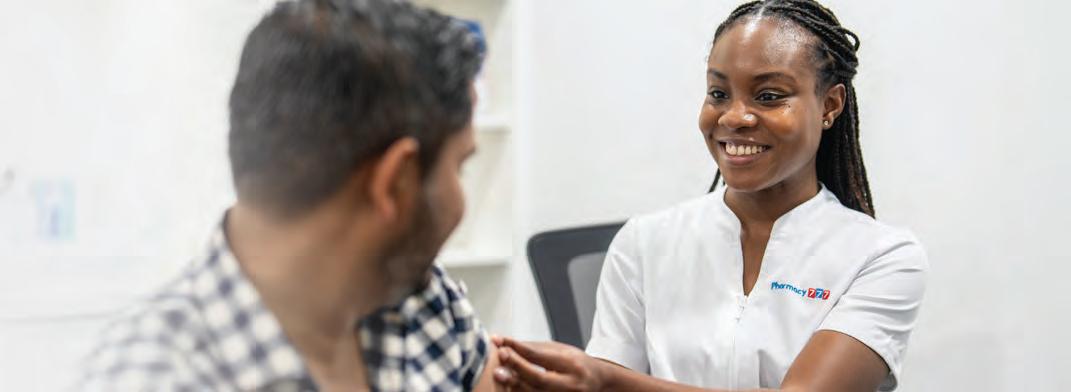
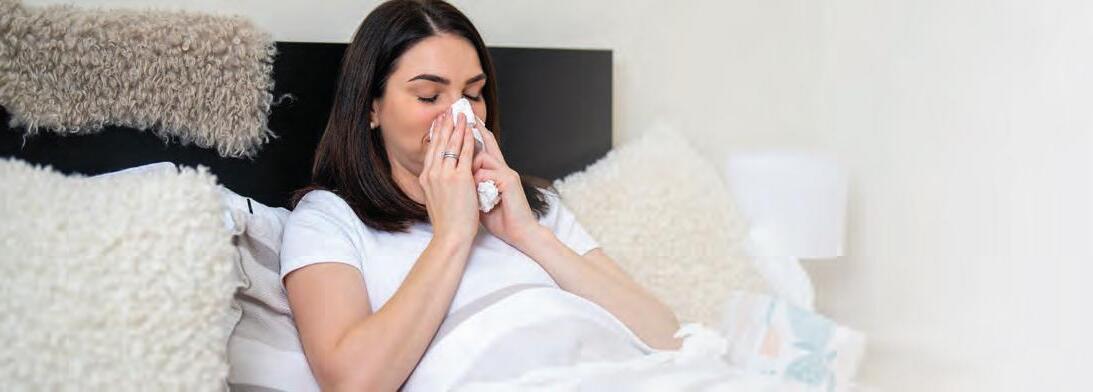
I wanted to take a moment to share some updates from the team at Cranbourne Dental Centre.
It’s been another busy year, and we’ve remained committed to delivering quality care to every patient.
Thank you to all of our loyal patients for your continued support.
It’s a privilege to care for your health, and we look forward to seeing you at your next visit.
This Dental Health Week, it’s time to focus on something often overlooked but deeply telling: our children’s oral health.
According to the 2024 Casey Oral Health Profile by Dental Health Services Victoria - based on public dental data from 2019 to 2023 - 49.1 percent of six-year-olds in the City of Casey have already experienced tooth decay.
That’s significantly higher than the statewide average of 30.1 percent.
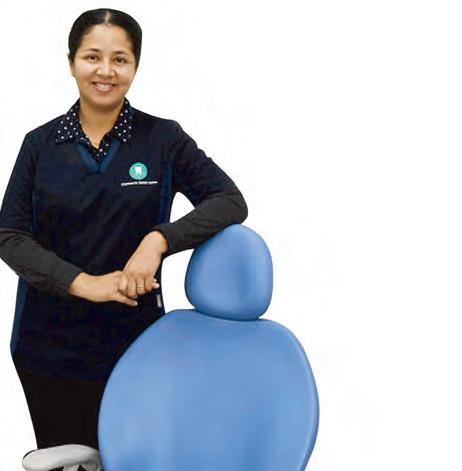
Also, by age 12, nearly 48 percent of children in Casey have at least one decayed, missing, or filled tooth.
These figures point to a silent but significant issue: early tooth decay is affecting almost half of our childrenoften before they’ve lost their baby teeth.
At Cranbourne Dental Centre, our goal has always been to support and educate families in our local community.
While government programs like CDBS and Smile Squad provide a foundation, barriers such as long public waitlists, cost concerns, and lack of awareness still prevent many children from receiving timely care.
With the rising cost of living, we understand the importance of making dental care as affordable as possible.
We are doing our best and are committed to being part of the solution - offering accessible, approachable, family-focused care.
Every child deserves a healthy start, and that starts with a healthy smile.
Let’s work together to close this gap!
Cranbourne Dental Centre is at 2 Camms Road, Cranbourne. Call 5923 0099, email cranbournedental@gmail.com, or visit www.dentistincranbourne.com.au.
- Dr Ana Iyengar
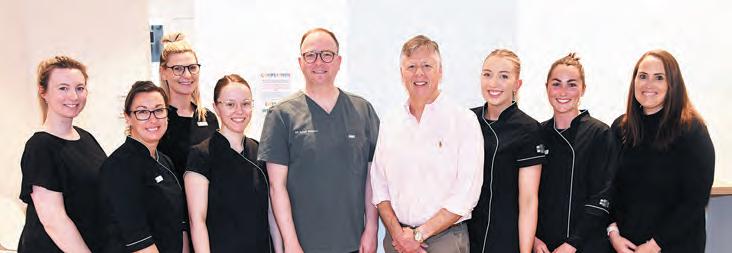
Orthodontic Treatment for children and adults utilising the latest technologies including SureSmile, Invisalign, lingual and clear appliances.
We offer flexible, interest free payment plans to make orthodontics accessible to everyone. Strict hygiene and physical distancing policies in place.



AT South East Orthodontics in Berwick, creating confident, healthy smiles is at the heart of everything they do.
The dedicated team understands that every child’s smile is unique, which is why they offer a personalised approach to orthodontic care for children, teens, and families across the Casey Cardinia region.
Many parents wonder when the right time is to see an orthodontist.
The experts at South East Orthodontics recommend an initial consultation around the age of 7.
At this stage, their highly trained orthodontists can identify any developing issues early and guide jaw and tooth growth in the right direction.
Early intervention can make treatment simpler, more comfortable, and more effective as your child grows.
Using the latest in orthodontic technology – from modern braces to discreet clear aligners – South
East Orthodontics ensures children and teens receive treatment that suits their lifestyle and needs.
Their focus on comfort, innovation, and ongoing education means families can feel confident their child is receiving the very best care available.
Beyond straight teeth, orthodontics plays an important role in a child’s overall health.
Correct alignment can improve chewing, speech, breathing, and even self-esteem.
For many young patients, the journey to a beautiful smile also helps build confidence that lasts a lifetime.
South East Orthodontics is proud to support families in Berwick and the wider Casey Cardinia area.
With a warm and welcoming environment, they make each visit a positive experience for both children and parents.
To learn more or book a consultation, visit www.seortho.com.au.





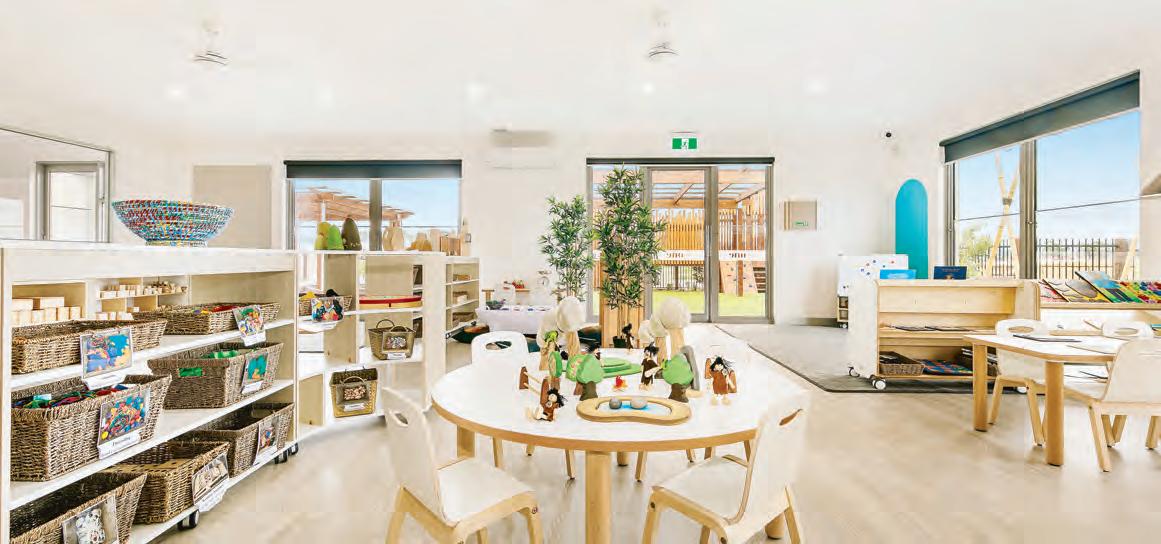
MELBOURNE’S south-east is home to world-class childcare and early education thanks to the vision of One Early Education CEO Richard Rice.
Redefining traditional childcare models, One Early Education combines state-of-the-art facilities with play-based learning and an exclusive brain development program, specifically designed to give children the best possible environment during their critical early years.
“One of the main reasons families choose One is because of our extraordinary team of educators, dedicated to every child’s education and development,” Mr Rice said.
“Our world-class culture not only attracts the best educators, but also keeps
them with us for the long term.
“Families value seeing familiar, trusted faces guiding their children year after year.”
The purpose-built centres in Officer, Clyde North, and Cranbourne East feature abundant natural light and inspiring play spaces, encouraging both structured and unstructured play, both essential for optimal development.
A qualified nutritionist and on-site cook prepare seasonal menus that not only support children’s physical development but also introduce them to a love of healthy food from an early age.
Outdoor areas include thriving vegetable gardens, climbing forts, and natural play spaces to support gross motor skills.
Enrichment programs, underpinned by One’s exclusive brain development program, ensure every child develops holistically.
The first five years are critical to a child’s growth, with the foundations for learning, health, and behaviour established for life.
The One Early Education curriculum has been carefully designed for Australian families and guided by the national Early Years Learning Framework.
“The childcare sector is changing,” added Mr Rice.
“Parents now demand world-class facilities, high quality staff, and most importantly, enriching programs that deliver incredible learning experiences.”
THE Premiers’ Reading Challenge is celebrating its 20th year of nurturing literacy, sparking imagination, and instilling a love of learning in young students.
Since it began in 2005, about 4.75 million young Victorians have read close to 65 million books.
This year’s challenge finished on the first Friday in September and was themed ‘20 years of words and wonder’, encouraging children to discover new books and a love of reading.
For children not yet at school, the challenge invited parents and carers to experience 40 books with their child.
Students from Prep to Grade 2 were encouraged to read 30 books, while students in Years 3 to 10 were challenged to read 15 books.
Participants could select from more than 15,000 books from the Challenge booklist or choose their own, including picture books, short stories, poems, or non-fiction titles.
“Participants will receive a Certificate of Achievement for the Challenge, and more importantly, discover a lifelong love of reading,” Education Minister Ben Carroll said.
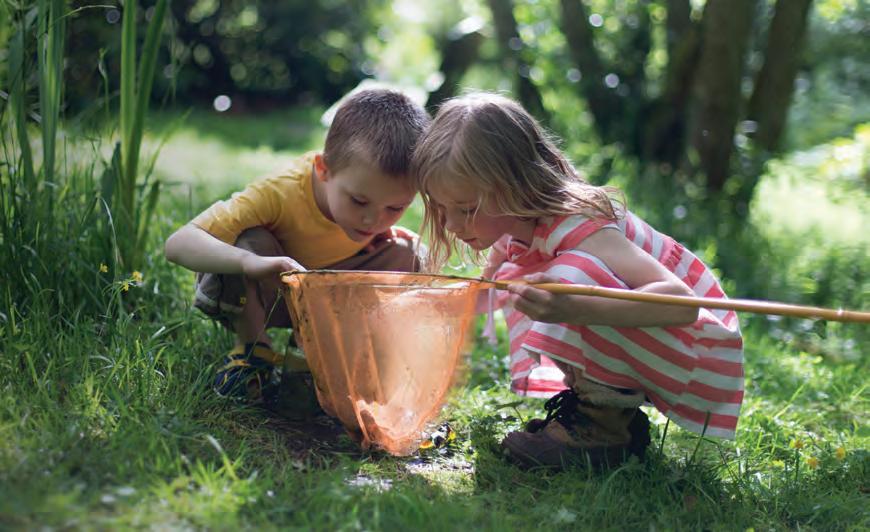
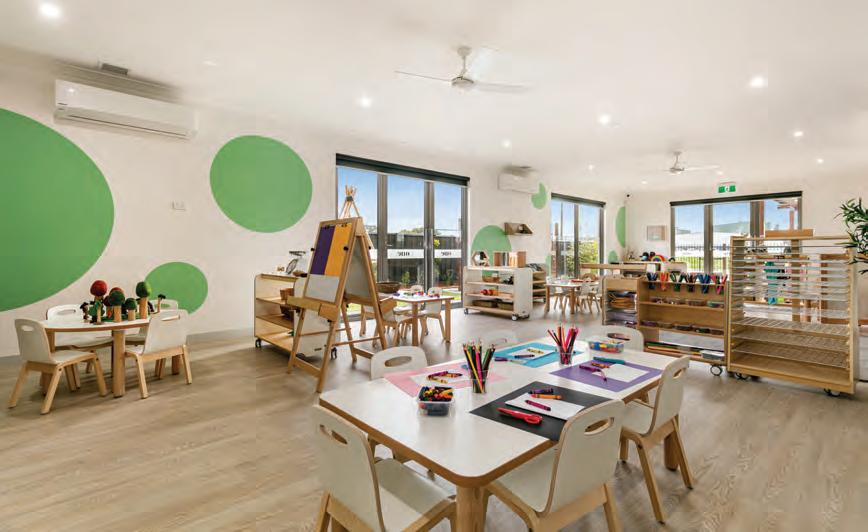
THE Royal Children’s Hospital kindergarten program will continue to support about 280 children each year.
Yalingbu Yirramboi, the RCH school, received a $2.5 million boost in the 2025/26 State Budget to keep delivering kinder to children with complex medical needs.
RCH CEO Dr Peter Steer said the program was invaluable and ensured no child missed out on vital early education.
Early childhood teachers and specialist staff deliver tailored, playbased education designed around each child’s individual needs, helping children keep learning, growing, and connecting, even during some of their toughest moments.
Classrooms on wheels bring the learning right to the child’s bedside for those too unwell to leave their room, with fun, hands-on activities that keep them engaged and supported.
Small group sessions run each weekday for children well enough to attend, often with parents or carers joining in.


“Long stays in hospital can be incredibly tough for children and their families,” Health Minister Mary-Anne Thomas said.
“This program helps ease that burden, keeping kids connected to education whilst they get the care they need.”
The kinder’s support doesn’t stop when a child leaves hospital. Staff work closely with families and home kindergartens to ensure a smooth transition and ongoing learning success.
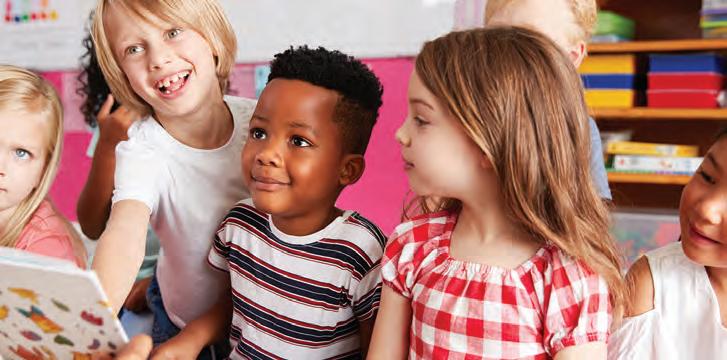
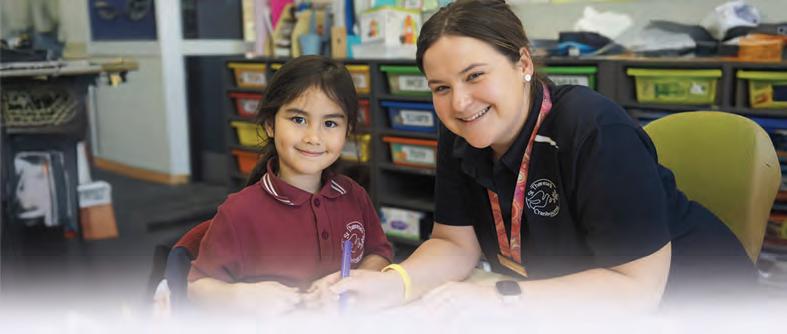
ST Therese’s Primary School’s vision is simple: do all that you do with love.
The school provides a faith-filled, safe, respectful, and welcoming community where everyone thrives.
From the moment a child steps through the doors, they are invited to encounter God through meaningful interactions with both students and staff in a calm and nurturing environment.
The St Therese’s team strives to ensure that each student grows in faith, understanding, and respect for one another.
As one of the smallest primary schools in the Cranbourne area, the school takes pride in the fact that every name is known.
The intimate setting allows the teaching team to foster a close-knit community where diversity is celebrated.
Students from a wide range of cultural backgrounds come together, enriching the school with their unique perspectives and experiences.
At St Therese’s, the teaching team is committed to providing excellent educational opportunities through a
differentiated approach to numeracy and literacy.
Dedicated teachers use student learning data to tailor learning goals for each child.
An inquiry-based approach to religious education ensures that students leave with a holistic understanding of Catholic traditions and scripture, relating them to their lives in today’s ever-changing world.
The junior and middle learning neighbourhoods feature flexible, contemporary classrooms with large, multi-use project spaces, including fully fitted kitchens for small group or whole class activities.
Additionally, the school offers a rich and diverse curriculum, with weekly classes in visual and media arts, physical education, Japanese, and performing arts.
To learn more about what St Therese’s has to offer, contact the school office on 5996 7525 to book your personal tour.
Enrolments for 2026 are now open. Experience the difference at St Therese’s Primary School, where love and learning go hand in hand.



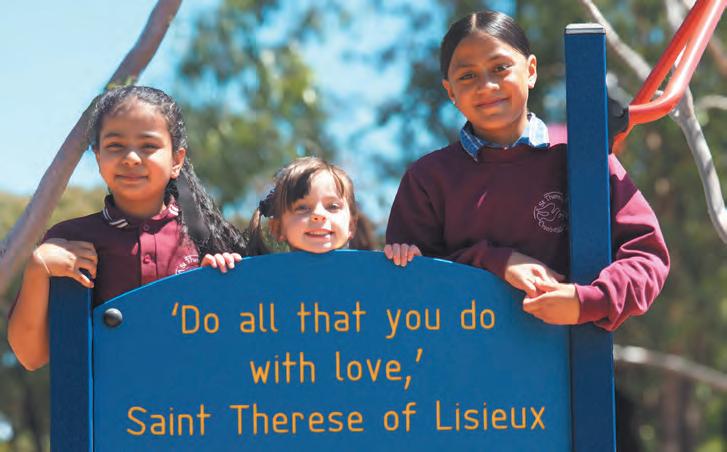



AMBULANCE Victoria’s Kids Save Lives program has been expanded, offering life-saving CPR skills to even more students.
The life-saving, Australian-first program aims to improve cardiac arrest survival rates by showing students how to do cardiopulmonary resuscitation (CPR) and use an automated external defibrillator (AED).
Last year, Ambulance Victoria paramedics responded to 7545 out-ofhospital cardiac arrests.
Every day, about 20 Victorians suffer a cardiac arrest, but only one in 10 survives.
Ambulance Victoria regional operations executive director Danielle North said it was important that both adults and young people knew CPR and how to use an AED.
“Our Kids Save Lives program contains essential learning and lifesaving skills,” Ms North said.
“Students will not only be able to share their knowledge with friends and family, but also with their wider community.”
“The students have really engaged with the learning,” she said.
Through Kids Save Lives, students are taught to recognise when someone is in cardiac arrest and follow three simple steps:
■ Call - Call Triple Zero


■ Push - Perform CPR
■ Shock - Use an AED
The program is run in partnership with the Heart Foundation, Monash University, Australian Resuscitation Council, Department of Education and Training, and Heart of the Nation.
AT Minaret College, students benefit from a well-rounded education that nurtures both academic excellence and personal growth.
The school’s curriculum is designed to inspire intellectual curiosity, encourage creativity, and develop critical thinking skills, while its co-curricular programs provide opportunities for students to explore their passions beyond the classroom in all areas, from sports, arts, and leadership initiatives to community service and Islamic faith-based activities.
Across three campuses in Melbourne’s south-east, and from pre-school to VCE, Minaret students are empowered to become capable, compassionate, and contributing members of society.
The school welcomes prospective students to a showcase of its academic and co-curricular programs at the Minaret College Open Day at the Officer campus on Saturday 11 October, from 10am to 4pm.


Enjoy a variety of engaging activities, interactive displays, and vibrant demonstrations highlighting students’ talents and achievements.
It’s the perfect opportunity to explore the school’s facilities and experience the dynamic learning environment that makes Minaret College unique.
In addition, the campus will transform into a lively fairground, complete with thrilling rides for all ages, a petting zoo, mouth-watering food trucks, and an array of retail stalls.
The open day is open to the entire community, and Minaret warmly encourages you to bring your friends and family to join the fun.
Entry is free, and for those who want to make the most of the excitement, an unlimited rides pass is available for just $20.
Mark your calendar, spread the word, and see why Minaret College is more than a school – it’s a thriving community.
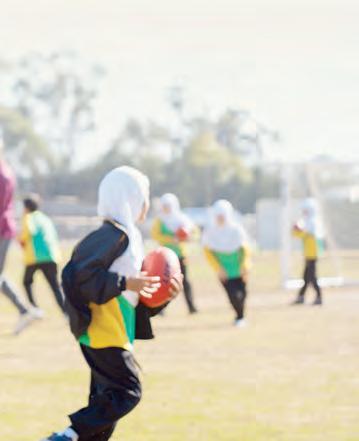
trained in CPR.
She said those with training were more willing to help others in emergency situations.
“Educating children is a successful way to reach the entire population, as children can be encouraged to teach others,” she said.
“We know that CPR training programs in schools that have run overseas in Sweden, France, Denmark, Norway, and the UK have equipped participants with life-saving knowledge.
“These countries now have some of the highest bystander CPR and survival rates.”
More than 5300 students from 35 schools have already enrolled in the expansion pilot program, and more secondary schools are urged to get involved.
“You don’t have to be a paramedic to save a life – you just need to be able to perform CPR and know how to use an AED,” Ms Enright said.
The Heart Foundation’s Victorian general manager, Chris Enright, said only half of Australian adults were

Email community.engagement@ ambulance.vic.gov.au for more information about the free Kids Save Lives program.



























































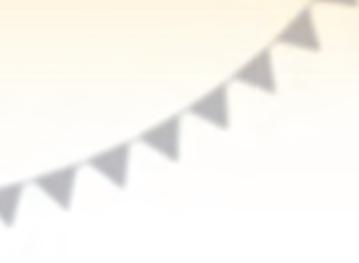


























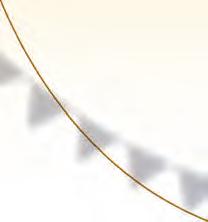



THE early warning signs of school stress are often easy to miss, says one education expert.
“Most students won’t come out and say ‘I need help’, but their behaviour will,” Success Tutoring founder Michael Black said.
“The key is knowing what to look for before it affects their results or wellbeing.”
Mr Black said parents should pay close attention to behavioural and emotional cues that might indicate their child is falling behind or feeling overwhelmed.

“While school reports are helpful, the
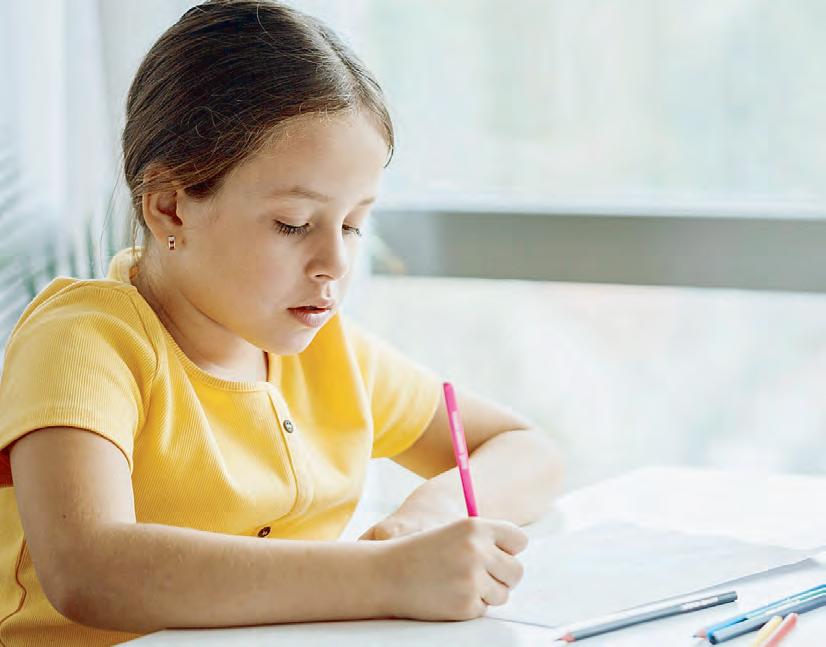


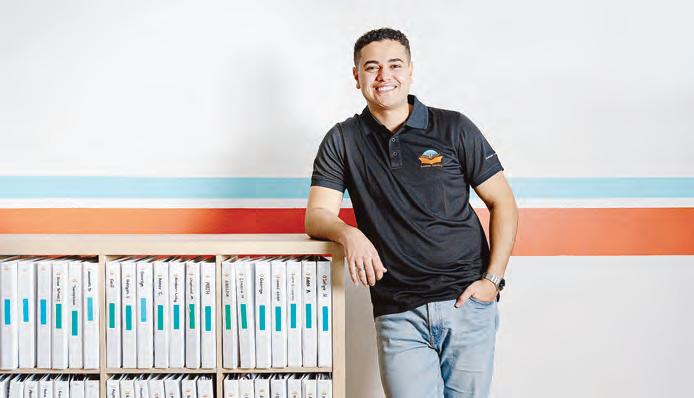

education journey and also their self-esteem and confidence.”
Mr Black said a shift in your child’s attitude toward school or a noticeable dip in their results could point to more than academic difficulty.
“When students start believing they are ‘not smart enough’ or ‘bad at exams’, it damages their motivation and selfbelief,” he said.
“This lack of confidence quickly impacts their performance across multiple subjects.
“It is important to recognise when a child is engaging in negative self-talk and to step in with reassurance and support before it affects their confidence and wellbeing.”

Mr Black urged parents to pay attention to mood swings, irritability, anxiety or withdrawal, especially when school or exams are mentioned.
“Emotional distress is a major indicator that your child may be silently struggling,” he said.
“This can show up as tears, anger, silence, or even physical symptoms like headaches or fatigue leading up to study time.”
He said recognising these signs early could make all the difference.
“The right support at the right time can change the way a student approaches challenges,” he said.
“It’s not just about results, it’s about belief in themselves.”
A national-first partnership is helping teens navigate the ethical and social challenges of a world overwhelmed by artificial intelligence, social media, and climate change.
Monash University’s Cranlana Centre for Ethical Leadership is delivering an ethics program to Year 9 students at St Catherine’s School.
Cranlana’s executive-level ethics curriculum - popular among senior execs, judges, and policymakers - will be embedded in the classroom.
“Today’s teenagers face dilemmas that most adults weren’t ready for until their thirties,” Cranlana CEO Matt Finnis said.
“We can’t protect them from these challenges, but we can give our future leaders the ethical framework to act on their values under pressure.”
Mr Finnis said the program would develop students’ capacity for ethical thinking and moral reasoning at a crucial stage in their development.
It consists of an intensive two-week residential in Narmbool plus classroom work throughout the year, connecting timeless philosophical wisdom with real-world application.
“Rather than a one-off seminar or values week, the program will embed ethical decision-making and leadership into a core part of students’ learning,” Mr Finnis said.
“It’s not about telling them what to think or how to behave, it’s about helping them develop the tools to think ethically,

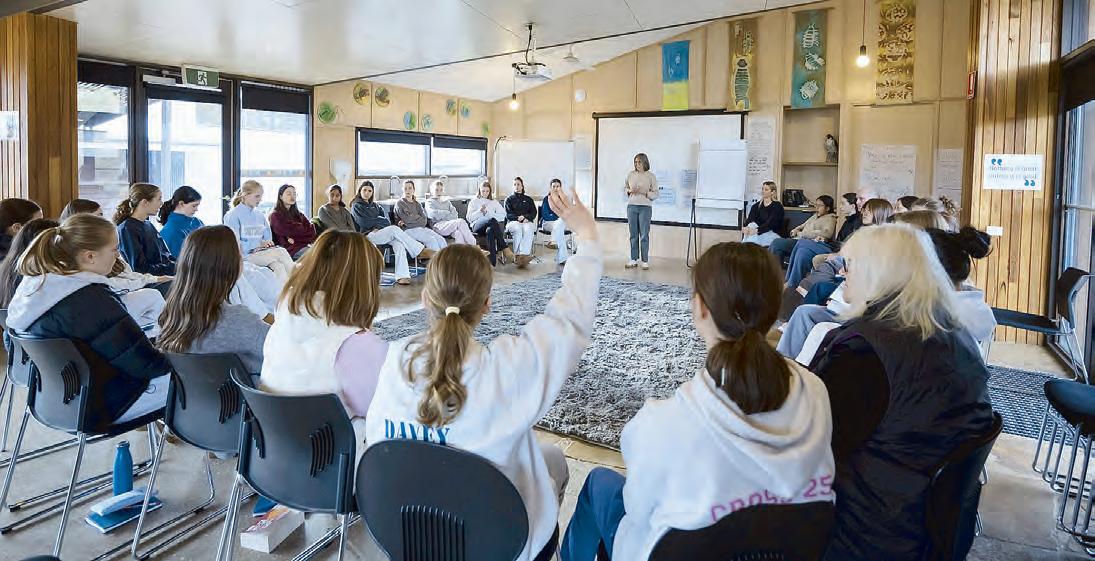
under pressure, and with others in mind.”
The eSafety Commissioner’s Youth Digital Participation report found that four in five teens felt pressure to present a perfect version of themselves online, while 42 percent had experienced some form of online hate or harassment.
The rise of generative AI tools like ChatGPT has raised questions about authenticity, academic integrity, and the erosion of critical thinking.
Mr Finnis said these were not just technological shifts but ethical
dilemmas, and today’s adolescents were often left to navigate them without the language or frameworks to do so.
St Catherine’s and Cranlana hope the partnership will serve as a model for other schools across the country, proactively equipping Australia’s youth with moral courage and the ability to make ethical decisions in a world where it will most certainly be asked of them.
St Catherine’s principal Natalie Charles said the partnership was about making space - physically and
symbolically - for students to engage with fundamental questions of individual and collective goodness, “moving beyond external pressures to explore deeper truths about themselves and their place in the world”.
“We want our students to leave us feeling optimistic about the future and their capacity to contribute in ways that ultimately enrich the very fabric of society at a time when the pursuit of truth, beauty, and goodness has never been more pressing,” she said.
YOUR Mornington Peninsula adventure starts here, at the top of Arthurs Seat!
Enchanted Adventure is an award-winning natural attraction nestled in the beautiful hinterland of the Mornington Peninsula.
Its creators believe that adventure is a key ingredient to fun, so they’ve built a host of exciting activities for all ages.
With humble beginnings in 1997, Enchanted Adventure has grown into a wonderland of adventure activities designed to enliven the senses and challenge the mind - a living, breathing work of art.
Situated across 25 acres, the park encompasses adventure for adults and kids alike, from the epic tube slides to the tree surfing courses, life-size brainteaser puzzles, the MisAdventure Voyage playground, Sky Scramble, and more!
Lose yourself in the colours of more than 20 themed gardens, marvel at the structures of hedge topiary and an array of giant
sculptures, or get tangled in one of the five mazes.
Enchanted Adventure is a place where you can reconnect with the people you care most about and have a whole lot of fun while you’re at it.
Pre-book your adventure these spring school holidays to avoid missing out, and experience the park as it comes back to life, full of colour!
So head on up the hill and discover your own adventure with the Enchanted Adventure team.
There’s truly something around each corner to delight everyone in the family.
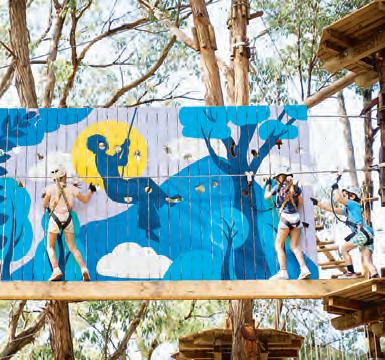
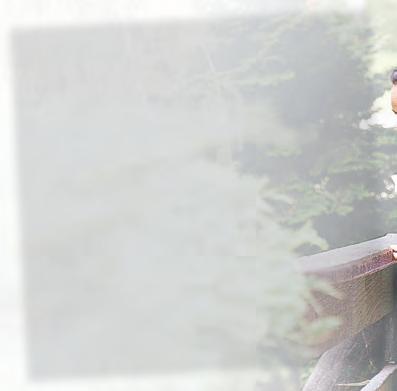
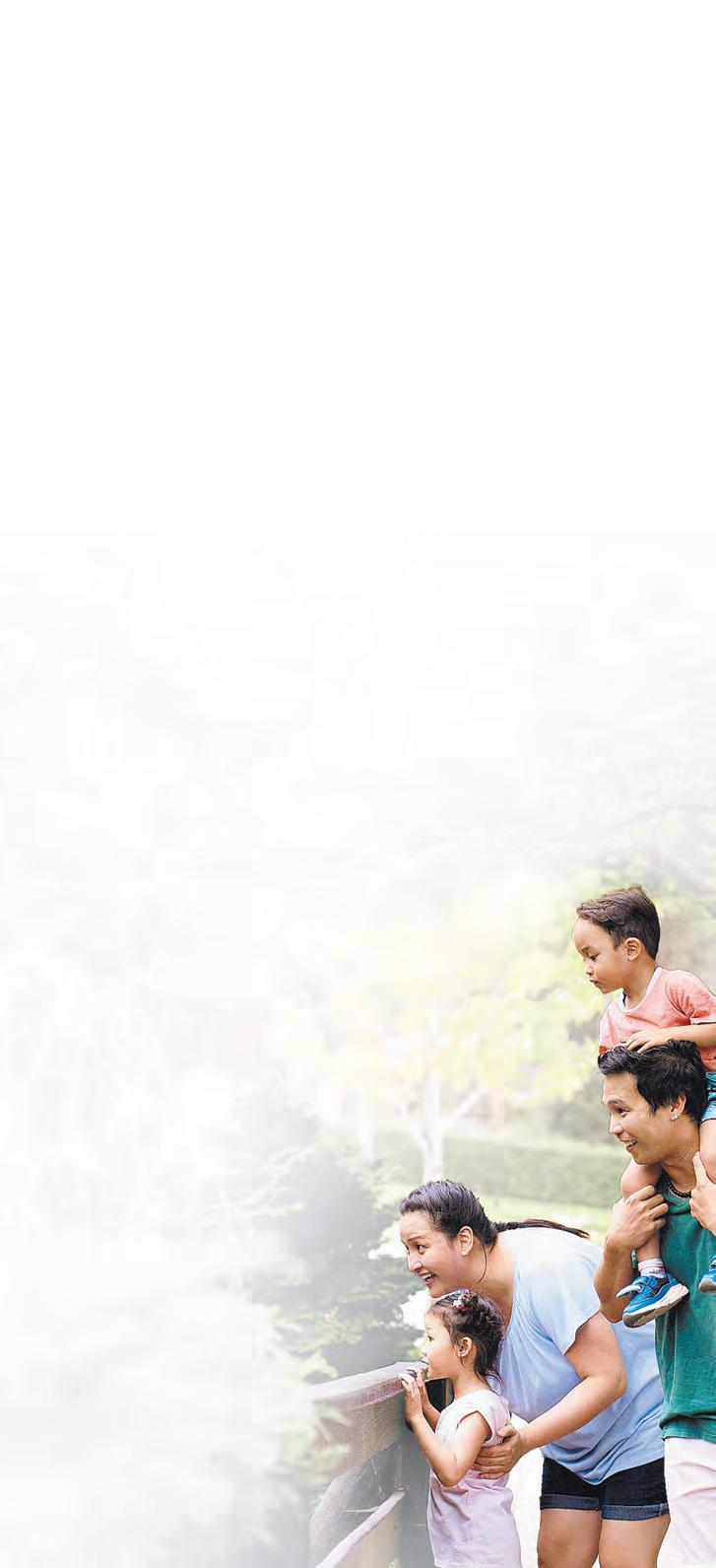

THE friendliness and familiarity of your local centre is a great place to shop.
The food options are varied and delicious at Cardinia Lakes Shopping Centre, with delivery and takeaway options still available, you can now get back to dine-in options too.
The wonderful team at Sugarcoat Nails and Beauty are well-equipped to help you feel fabulous for sandal season and to get your nails ready for Christmas and New Year celebrations.
favourite takeaway option.
Wok to Go rounds out the takeaway options with tasty Asian dishes galore to tempt your tastebuds.
At Direct Chemist Outlet, the staff are dedicated to their customers’ well-being and will help you make the right choices about maintaining good health.
Their gift range is outstanding as well, and you’ll be able to find the perfect gift, or maybe something extra special for yourself.

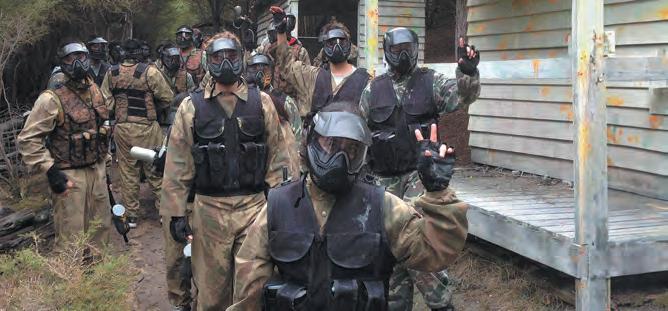

Pizza Fellas has a great range of pizzas that can be ordered online so they are ready for you when you pop in to pick up your dinner.

Great breakfast and lunch options are on the menu at Urban Hype Cafe. Come and meet the friendly staff and grab something for lunch or morning tea. Their coffee is just divine.
From their delicious salads to their tasty chicken, Uncle Sam’s Charcoal Chicken is a firm favourite in the neighbourhood for a quick and healthy meal.
Cardinia Lakes Fish and Chippery has delicious burgers, along with crispy chips and tasty fish for a

Call in to the centre’s new barber shop at shop five, Fadeline Barbers, for a great haircut for adults and children. Walk-ins only.
Stay up to date by following Cardinia Lakes Shopping Centre on Facebook.
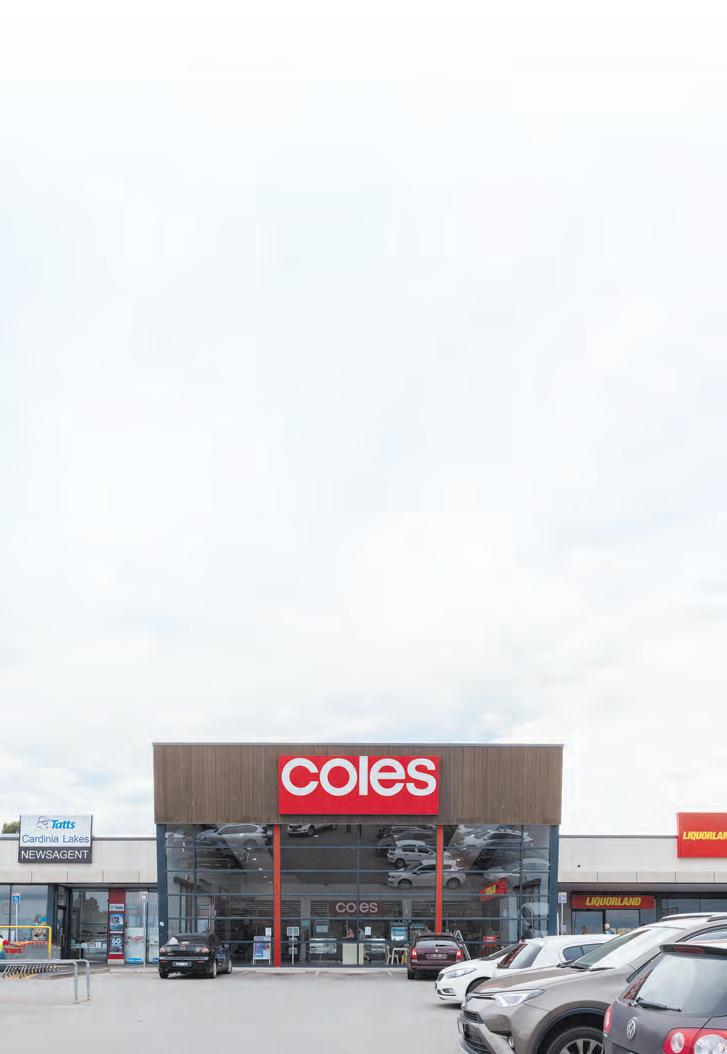



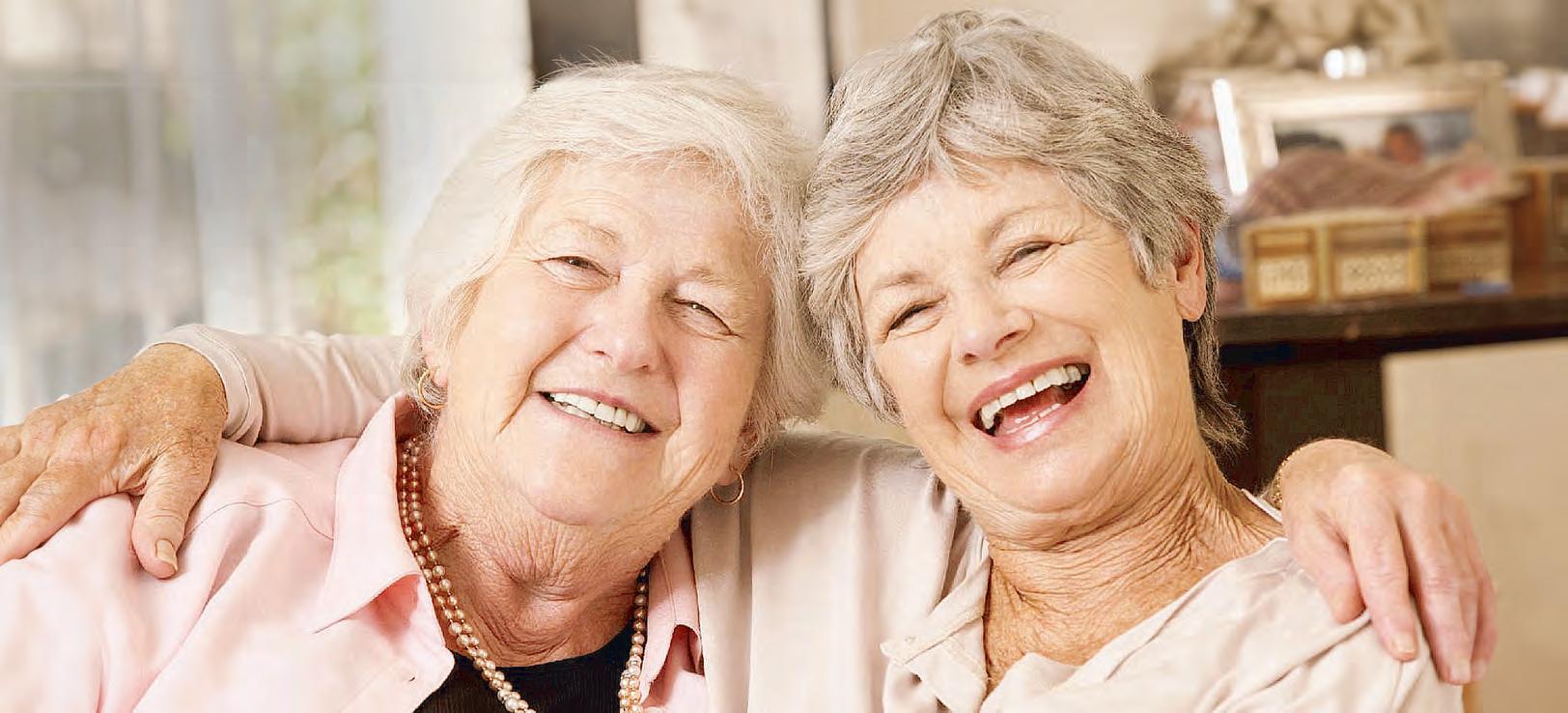
ENJOY the ultimate over-55s retirement lifestyle at Monash Retirement Community.
The team is passionate about creating a welcoming environment where every resident feels at home.
The 39-unit community offers vibrant and contemporary retirement living with an on-site manager and maintenance
officer, and 24-hour emergency call service.
Join a warm and friendly community where peaceful living is most important and where neighbours become friends.
A community area encourages resident interaction and engagement, and there are weekly shopping trips and social club activities.


Monash Retirement Community is set on beautifully tranquil landscaped gardens.
Two-bedroom independent living units have new light-filled kitchens, bathrooms, and laundries, as well as flooring and window furnishings.
With an abundance of storage areas, large master bedrooms with double
built-in wardrobes, and a flexible second bedroom/study space perfect for guests or that part-time hobby.
Units start from $435,000.
Monash Retirement Community is at 97-99 Monash Drive, Mulgrave. Call 0484 243 225 to arrange an inspection or email monash@auscare.com.
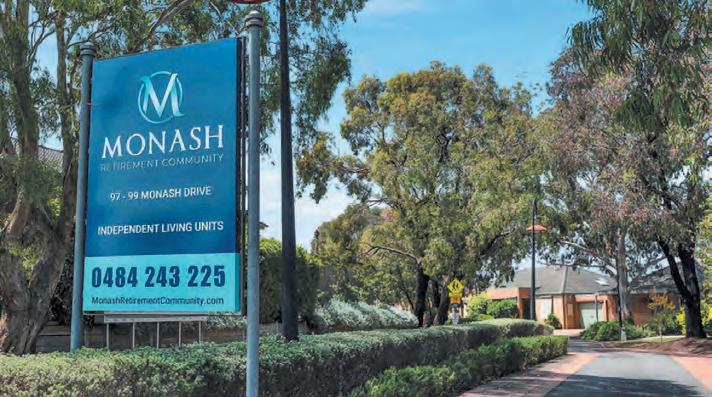
THE school holidays are a blast in Cardinia Shire.
Families can enjoy exciting activities and events that cater to all ages.
This vibrant region is bustling with opportunities for fun, creativity, and learning, making it an ideal destination for families looking to make the most of their time together.
Cardinia Cultural Centre will present a range of delightful experiences for everyone, including the muchanticipated return of Victorian State Ballet with their beloved production of Aladdin.
This enchanting performance promises to captivate young audiences and bring joy to the whole family.
It’s not just an opportunity to enjoy the arts; it provides a chance to introduce children to the magic of live performances, sparking their imagination and appreciation for culture.
The cultural centre will also host ‘First Australians: Freedom For Our Lifetime’, an impactful free event designed for families with children aged 15 and older.
This program offers an enriching experience that encourages critical thinking about history and social issues while making it accessible for everyone
to engage and learn together.
For those with creative flair, the Robert Gordon exhibition, ‘Eighty Years of Earth, Clay and Fire: The Enduring Story of Robert Gordon Pottery’, showcases the enduring craft of Robert Gordon Pottery.
Families can look forward to a dynamic public program, which includes both free and paid activities for kids.
Beyond the cultural centre, the Koo Wee Rup Mini Festival promises to be an exciting day out for young people and families, featuring skate lessons, games, free food, and more!
Adding to the excitement, there’s a fishing clinic at Emerald Lake Park, and a ‘come and try day’ sports event at James Bathe Reserve, perfect for families looking to learn something new.
Don’t forget to also check out the Youth Services Teenage Holiday Program, which is jam-packed full of activities for 12 to 17-year-olds.
In Cardinia Shire, the school holidays are a season of exploration, creativity, and connection for families.
With so much on offer, there’s no better time to dive in and explore all that Cardinia has to share.
To find out more, visit cardinia.vic. gov.au/septholidays25.




FIRE safety education is the best way to reduce risks for kids – and it doesn’t have to be dull! Kids learn best through play, so why not make fire safety an adventure?
Studies show that interactive elements like quizzes, simulations, and games shift kids from passive listeners to active participants in learning, Brooks Australia says.
So the company is sharing some fun ways to teach kids about fire safety.
■ Turn them into ‘fire safety superheroes’ with a ‘super checklist’. They can search for potential fire hazards around the house, like overloaded power boards or unattended candles.
With each discovery, encourage them to share their findings and discuss why these could be risky to earn a badge or sticker.
■ Turn fire drills into an obstacle course ‘great escape’ challenge.
Children can practice crawling under smoke made from streamers or identifying safe exits, with a certificate awaiting them at the finish line. This can help them react quickly and calmly in case of a real emergency.
Involve children in creating a family fire escape plan.
Through both planning and fire safety drills, appropriate behaviour is reinforced, such as alerting an adult to the alarm or fire, evacuation, going to a pre-arranged safe place, and calling emergency services.
■ Interactive activities like puppet shows are also a great way to make fire safety memorable. Puppets can act out scenarios, such as teaching ‘stop, drop, and roll’ or responding to a smoke alarm.
Children can take turns to create their own stories to help retain information.
This can also be a great way to explain the purpose of smoke alarms and why these are crucial for early detection of fires, while also teaching children how to recognise the sound of the smoke alarm and what actions to take when they hear it.
■ Create flashcards featuring common kitchen appliances and corresponding safety tips, like keeping paper towels away from the toaster or not using metal in the microwave.
Kids can match the cards to the appliances in the kitchen, learning safety rules as they play.
Visit brooks.com.au for more fire safety resources.
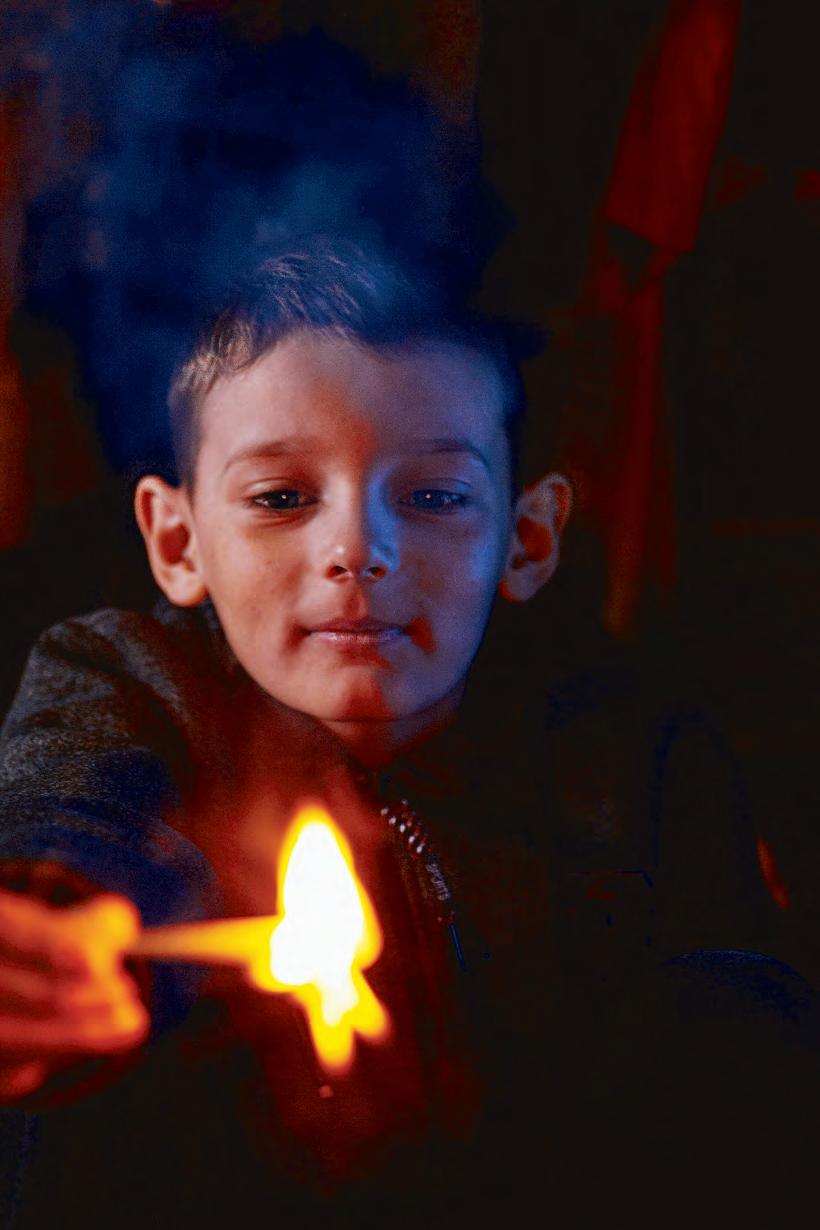








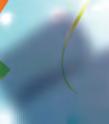







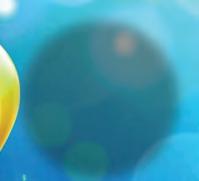






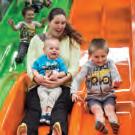


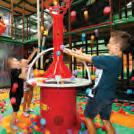
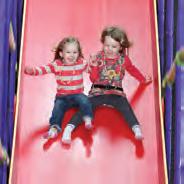
THE fourth trimester challenges mums physically, emotionally, and mentally.
So The Midwife Mumma, Amelia Lamont, is sharing her unfiltered, honest, and achievable advice for the first twelve weeks after birth.
The mum of four, midwife, and lactation and sleep consultant says the fourth trimester is often swept aside after the buildup and focus on pregnancy and birth.
“The fourth trimester is rough, but beautiful. Challenging, but rewarding. Exhausting, but fulfilling. Indefinite, but short,” Amelia wrote.
“You will not just be physically and emotionally challenged for the next twelve or so weeks, you’ll be mentally challenged too.”
Her new book, The Fourth Trimester, covers birth; the first day and night at home; feeding; health checks and vital health milestones; the importance of sleep and how to get it; and finding your groove and maintaining your mental health and wellbeing.
“Generally, by the time you hit home, the happy hormones and adrenaline have worn off,” Amelia wrote.
“Reality sets in and you begin to realise that what lies ahead for the next few months is constant nappy changes, never-ending walks to dispose of them in the outside bin, and countless hours feeding your baby, whether that be via the breast or the bottle.
“It’s cold coffee and toast scraps. Sore boobs and sore bums.
“Forgetting yourself and feeling invisible. Prioritising everything but minimising your needs.
“Healing your body yet stretching yourself more than ever before.”
Amelia told readers she couldn’t help but write this guide, despite being stretched herself.
“Sharing my words and personal knowledge
with you all is cathartic for me,” she said.
She stresses that she’s not a doctor, more like “a sister sharing advice with a sister, or a grandma or mumma telling their daughter wonderful words of insight”.
“Basically, I’m sharing some everyday ‘common sense’ – that doesn’t seem to be so common these days – from one midwife mumma to another fresh, fragile mumma and family,” she wrote
Amelia is mum to Alfie, 9, Essie, 7, Coco, 4, and Scout, 1.



She started her midwifery career 10 years ago and has since added qualified sleep consultant to her arsenal.
“The importance of sleep for everyone is so underrated, and for babies postpartum, sleep is a necessity for survival,” she wrote.
“After the birth of my third baby, Coco, I found I was absolutely loving breastfeeding the third time around.
“But I couldn’t help feeling a twinge of guilt that breastfeeding was so easy for me, when my Instagram was flooded with desperate mothers seeking breastfeeding support.
“It drove me to want to learn about breastfeeding in greater depth than my midwife training had provided, so I studied lactation consulting for a year, sat a four-hour exam and became a certified IBCLC (International Board of Certified Lactation Consultants).”
Amelia shares her motherhood highs and lows on Instagram account @themidwifemumma.




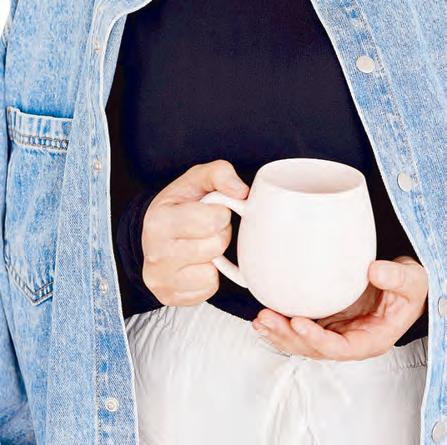


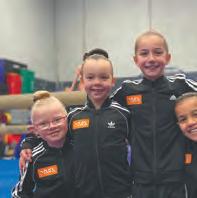
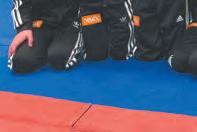
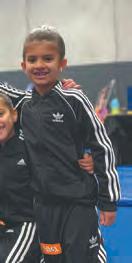






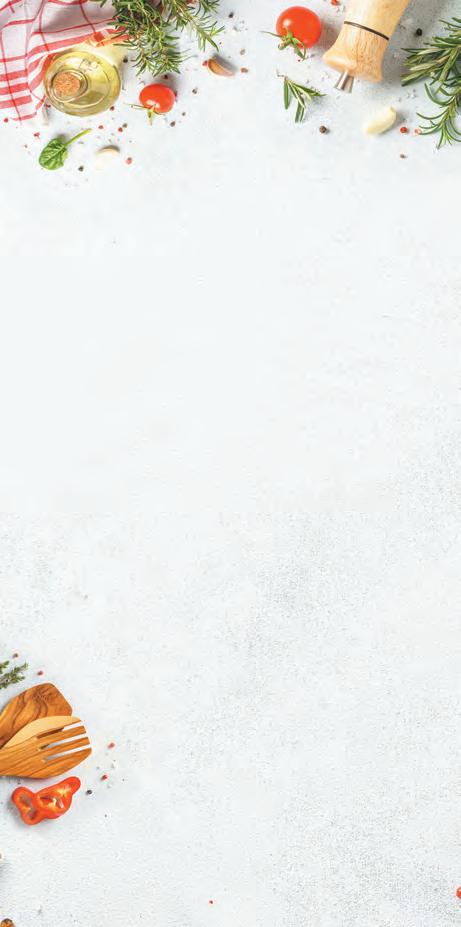















































































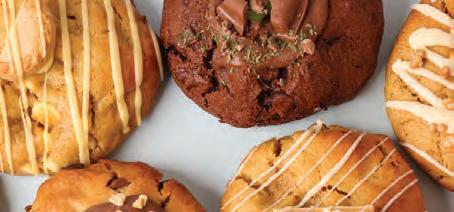






























































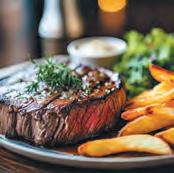









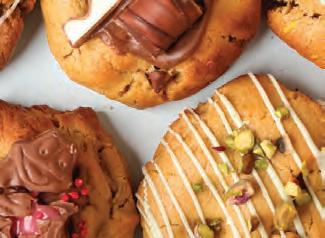





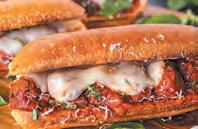

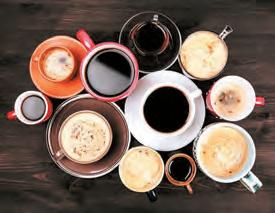


WANT your teen to move more? Move with them!
Teens whose parents exercise with them are more likely to have better physical and mental health, new research says.
The University of South Australia study showed teenagers who exercised more frequently with their families were more likely to:
■ meet physical activity guidelines of 60-plus minutes per day (23 percent);
■ meet recommended screentime guidelines of two hours or less per day (74 percent); and
■ report better mental health (81
percent), including higher life satisfaction (67 percent) and lower stress (86 percent), anxiety (73 percent), and depression (89 percent).
Dr Justin Lang, Adjunct Professor with UniSA and the Public Health Agency of Canada, said regular exercise was great for both body and mind.
“But with more teenagers glued to screens and devices, it’s easy for sedentary habits to take hold,” Dr Lang said.
“Getting teenagers up and moving is crucial to reversing the slide into inactivity – and as our study shows, the key may be in getting the whole family involved.
“We found that teenagers who exercise daily with their families are twice as likely to meet activity and screen time guidelines – and four times more likely to report stronger mental health and greater life satisfaction.
“The message is simple: when parents get active with their teens and lead by example, everyone wins.
“Teens feel better, move more, and their mental health is stronger.”
Co-researcher, Children’s Hospital of Eastern Ontario Research Institute’s (CHEO RI) Dr JP Chaput, said parents played a powerful role in influencing behaviours in their children.
“Exercising as a family does more than get hearts pumping,” he said.
“When parents take an active role in their teens’ physical activity, it can build stronger emotional bonds, improve communication, and help create a protective buffer against mental health challenges like stress, anxiety, and depression.
“So, when families prioritise being active together, they’re not only building healthy habits – they’re also investing in their teenagers’ long-term wellbeing.
“Ultimately, it’s a reminder that even small, shared moments of movement can make a big difference.”
INLAND waterways are among the most common sites for toddler and child fatalities, new figures reveal.
The Royal Life Saving Society Australia’s 2024 National Drowning Report found 15 Australian children aged between zero and four years drowned between July 2023 and June 2024.
Twenty percent of these occurred in inland waterways such as dams, rivers, and creeks In the five to 14 age group, 50 percent of drowning deaths occurred in these inland locations.
Kidsafe Victoria CEO Sarah Sexton said that despite the idyllic setting, farms were home to a range of hidden hazards that can prove dangerous for young children.
“Farms have a number of unique hazards which are not commonly found in a suburban home, including bodies of water such as dams, troughs, irrigation channels and septic pits,” she said.
“And young children are especially vulnerable.
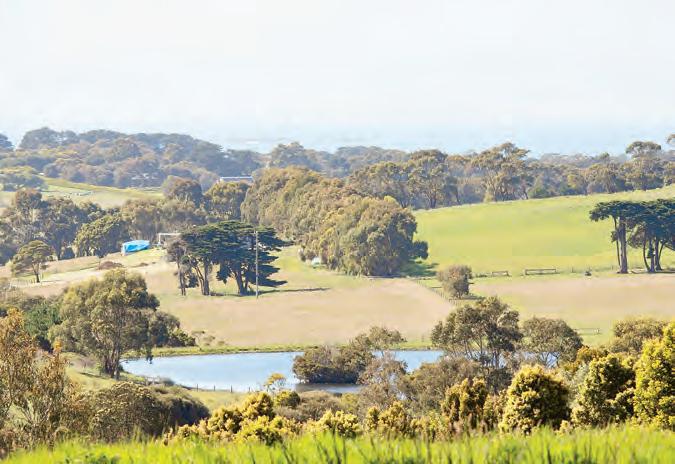

“Even in the midst of drought, when water levels may be lower or water bodies seem less of a threat, these hazards still pose a very real risk.
“Toddlers can drown in just a few centimetres of water, so it’s critical we don’t let our guard down.”
Life Saving Victoria’s Andrew English said prevention was always the goal but preparation remained critical, particularly in regional and rural areas.
“Too many young lives are lost in inland waterways such as dams and creeks - often close to home,” he said.
“We urge families to start water safety education early by enrolling children in swimming lessons and, equally, we encourage adults to regularly update their CPR and first aid training.
“In an emergency, knowing what to do can make all the difference.”
Farmsafe Australia executive officer Stevi Howdle added that active supervision was vital in keeping children safe on farms.
“Active supervision on farms means eyes on, not just nearby,” he said.
“It’s not enough for children to be within earshot, they need to be within sight and reach.
“Farms are dynamic, high-risk environments, and young children don’t always recognise danger.
“Supervision needs to be intentional, constant, and free from distractions like phones or jobs that pull your focus elsewhere.”
■ Make sure children are always actively supervised by an adult when in or around water. For toddlers, this means having an adult within arm’s reach.
■ Establish a securely fenced safe play area away from water hazards, machinery, and animals.
■ Cover water tanks, check septic lids are secure, and fill or fence any ditches or post holes.
■ Enrol children in swimming lessons from an early age.
■ Learn CPR and refresh your skills regularly.
■ Dress children in brightly coloured clothing for better visibility.
■ Check dams and creeks for changes in conditions, such as higher water levels and debris.
■ Where practical, remove any floating objects in dams that may attract curious children.
TAKE the guesswork out of buying quality clothes for your kids - touch and try on the latest spring and summer styles at your local boutique.
The Billy Lidz team has been doing the hard work for shoppers since 2009, selecting the best designer baby and kids wear from Australia, Europe, and America.
They’re happy to provide advice and assistance, making the task of clothing growing children that little bit easier.
The boutique’s spring and summer collection is full of colour, Australian label Goldie and Ace serving up a retro vibe.
New labels will be in-store soon, including another Aussie collection from Bowi.
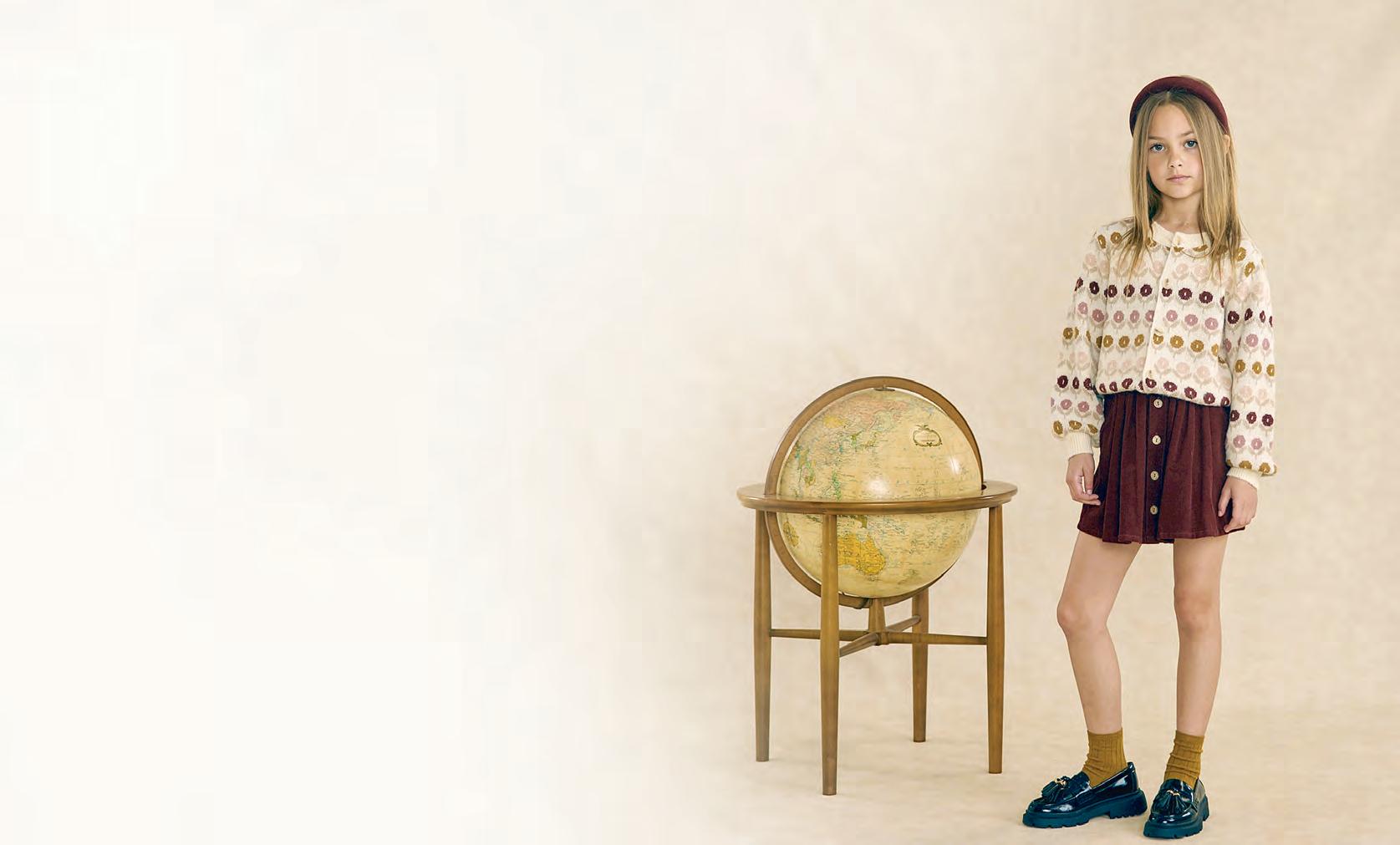
There are gift ideas galore, so pop in for a dose of inspiration for that baby shower pressie, birthday present, or treat to welcome a new bundle of joy.
Pick up beautiful baby items from international labels Cam Cam Copenhagen and Quincy Mae.
And don’t forget to shop for the mums, with must-haves like OiOi nappy bags, pram liners, and pram caddies, lactation cookies, and the super popular Hydramama products.
Shop local to keep small businesses running.
Visit Billy Lidz at 6 Blackburne Square, Berwick, or check out the range at www.lovemybillylidz.com.au

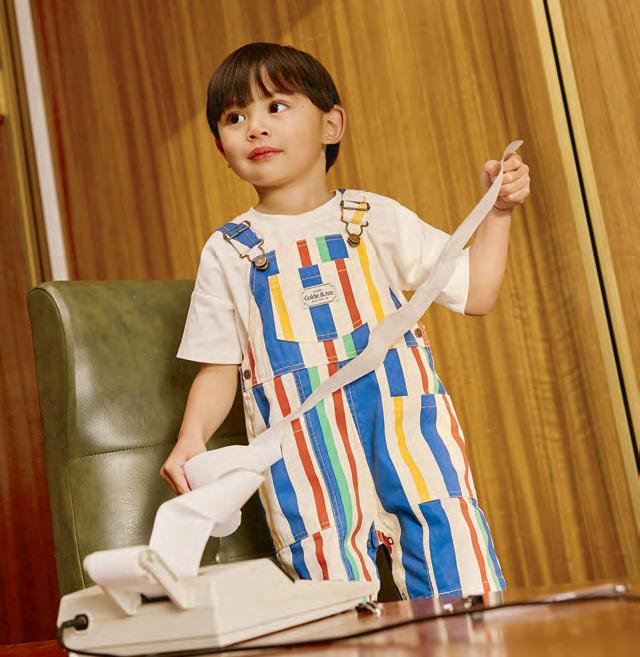
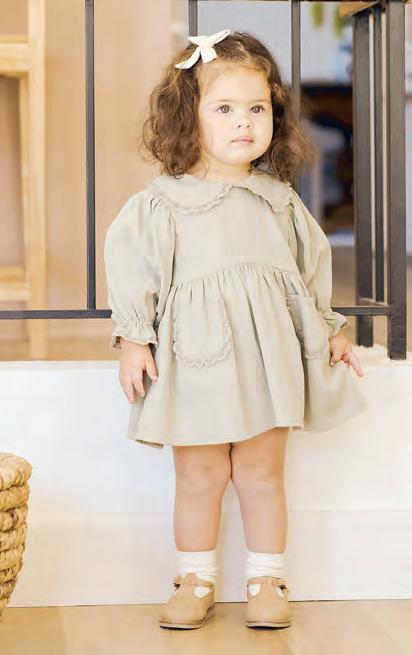

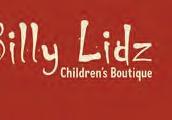
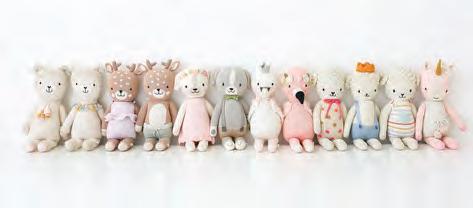


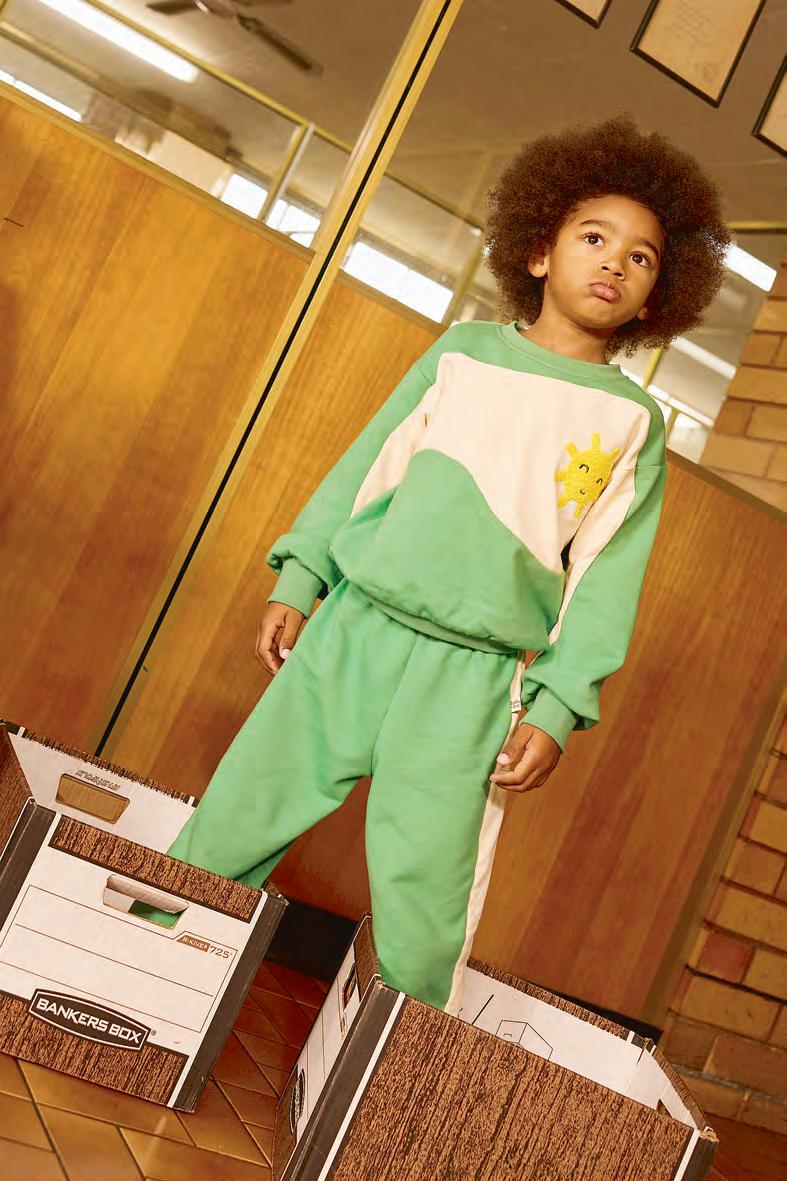
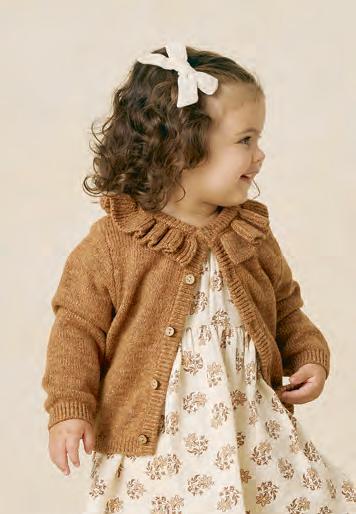


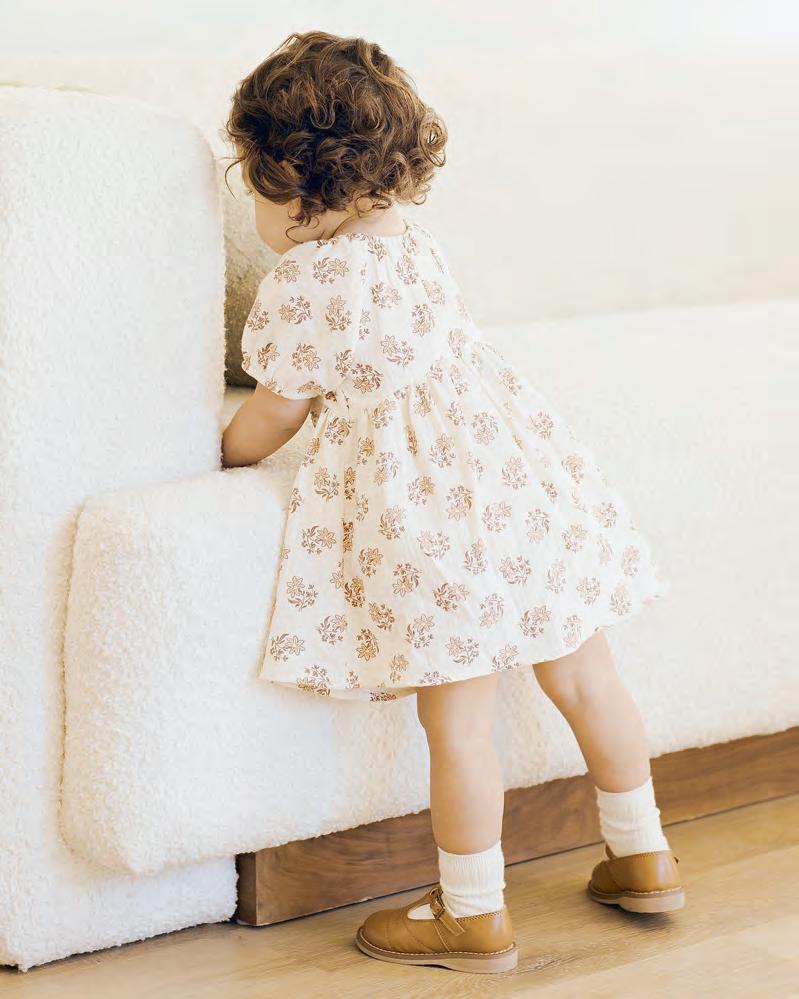

By Casey Neill
A father of two and former teacher is helping parents to connect with their kids through play.
Dale Sidebottom forged a career in the play space after yearning for a way to improve his days as a substitute teacher in London.
“You rock up and it’s just like a zoo,” he laughed.
Tired of students disregarding his authority, he decided to try winning them over with play.
So Dale would start the day with an ‘ice-breaker’ activity and roll from there.
He saw a complete turnaround in student behaviour. Kids were asking his name and actually paying attention to what he had to say.
They begged him for more games, so he’d promise to deliver one after lunch if they completed the assigned classwork, and another to round off the day.
“I built a connection with these kids instead of just telling them what to do,” he said.
Dale felt like he was onto something, and so did his colleagues.
They asked him to help them out with play ideas, inspiring him to create mobile app ClassBreak.
Filled with ideas for breaking up days in the classroom, it spent time as the number one app in Australia.
Dale’s online presence grew, attracting attention from international schools in particular.
Soon he was teaching in Australia during the week and flying to Dubai, Abu Dhabi and Singapore on the weekends.
“About nine years ago, I told my parents I was going to quit teaching and
play games,” he said.
“To be honest, it was very hard work for a long time, particularly in Australia.
“People thought it was airy-fairy.”
Landing a coveted TED Talk helped to change their minds.
Today, he’s based in bayside Chelsea with his wife and two preschool-aged sons, and is an internationally recognised play consultant and founder of The School of Play, Energetic Education, and Jugar Life.
“Play is a thing now, but still not on the scale we’re doing it,” he said.
“We pioneered something that’s never been done.
“We’re doing a gig nearly every day of the year now, speaking at conferences all around the world.”
Dale’s latest project is 365 Days of Play, a book designed to facilitate games and fun.
“Play doesn’t mean you need to set aside an hour at a time,” he said.
“Take 10 minutes, do one thing with them.
“People don’t know where to start.
“So, for every day, there’s a story about a place, person, country, or event.
“That relates to a play-based challenge you can do as a family.”
Dale explained that what constituted play ran the gamut, from LEGO and colouring to cooking and puzzles.
“I think one of the big misconceptions with play is you have to go outside and kick a ball,” he said.

“There’s so many ways you can play.
“How I look at play is you’re doing something and you’re present.
“That’s why play is incredible. It allows each individual to bring you their own
unique style and talents in ways they like.”
If you feel like you’re struggling to incorporate play into your day, you’re not alone - even Dale has been there.
“I thought I would have found parenting easier because of what I do,” he said.
“I’ve actually found it harder.

“My wife’s actually been better at it than what I have.

“I felt like I was failing for so long with the things that I was doing. I felt like I wasn’t good at being a dad.
“The things I want to do, they don’t want to. I’m a control freak in certain ways. That doesn’t work.
“The boys…they’ve been very grounding for me.
“I’ve had to be really creative and be intentional.
“I’ve completely changed as a person because of my kids, and it’s been in a good way.
“The one thing I need to have at the top of my list is to spend time with my boys and make them feel valued.
“That little shift has been huge.”
What about when you land home from work or the school pick up and your kids are demanding your attention while you’re trying to unpack bags and organise dinner?
“What I normally do is get on the front foot,” Dale said.
“I’ll say, ‘I want to build LEGO, do you want to build with me?’”
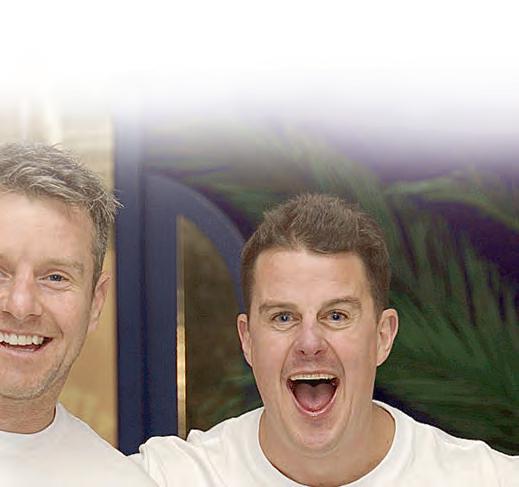
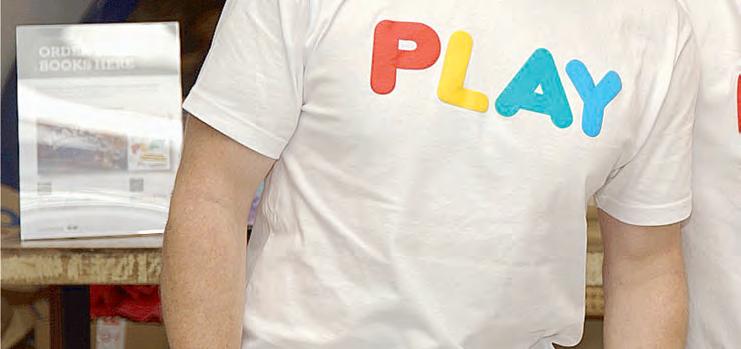
He’ll ask the boys to set up while he completes a task or two, then returns to play.
“It wasn’t a nagging thing because I was proactive with it,” he said.
“I make it a positive.
“They’re only nagging you because they want your attention and you’re not giving it to them.
“Then you don’t feel guilty about going back to getting dinner readyyou’ve already done something really nice with them.
“I was the one asking.
“That changes the dynamic - and at least I can pick the game I want to play.”
As for screens and play…Dale has some thoughts.
“A lot of parents go on about their kids’ screen time,” he said.
“They see everything we’re doing. They see their parents doing it.
“Unless you’re intentional with it, it will consume you.
“Don’t leave your phone where every time it goes off, it distracts you.”
Along with setting a good example, parents need to be prepared to say no to screen time.
“The kids don’t know what they need, they just know what they want,” Dale said.
“No one’s ever bored anymore. Creativity doesn’t occur.”
He said screens weren’t going anywhere, so we had to learn to better manage their pervasiveness.

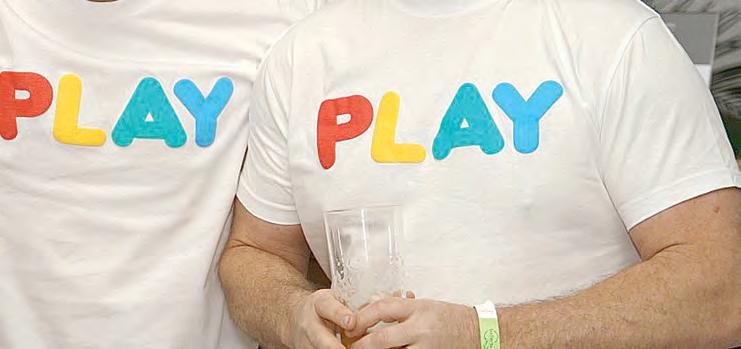

By Casey Neill
A rogue toad inspired a debut author’s heartwarming celebration of individuality, acceptance, and kindness.
Kelly Brodie-Brown hopes picture book The Style Secrets of Gareth McGreen leaves readers feeling “a little bit braver, a little bit bolder in how they want to present themselves to the world.”
“I want them to think, ‘The things that I like and the things that I’m drawn to are what make me me, and I shouldn’t be afraid to embrace that’,” she said.
Seeing Gareth land on bookshop shelves in August was as surreal and amazing as UK-born, Sunshine-based Kelly had imagined.
When we spoke, just a week after
amphibian crafting dazzling outfits for animals of all sorts soon took shape.
A shy young possum teaches Gareth to look past the fabric and frills to discover the real secret to feeling fabulous.
Her daughter, Astrid, 6, listened to many iterations of Gareth as Kelly painstakingly crafted her idea into a succinct, rhythmic, and lyrical story.
“Finding my way into picture books came from reading to Astrid,” Kelly said.
“Long before she could actually understand what we were reading to her, we would read her three picture books every night.
“Our favourites were well-crafted rhyming stories with a message



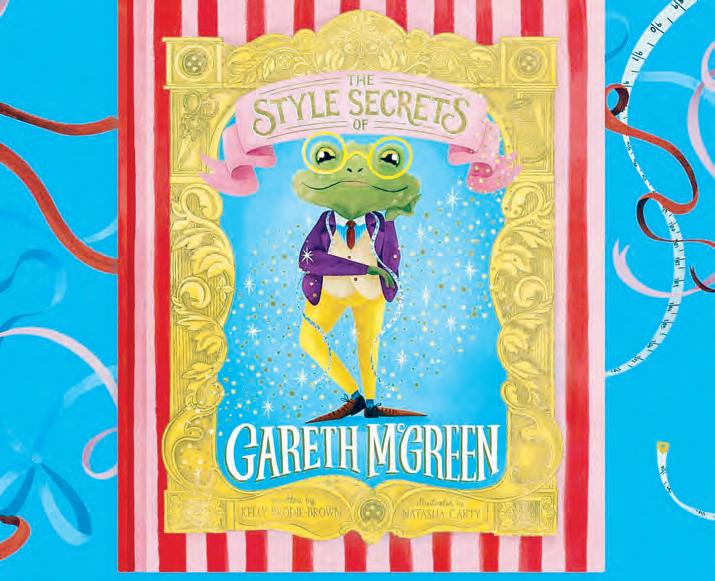

school assignments, I would always write a poem, always make it rhyme,” she said.
“But any book that’s too didactic in its
She knew Gareth needed to be subtle.
celebration of diversity and the spirit of “What makes the world an interesting
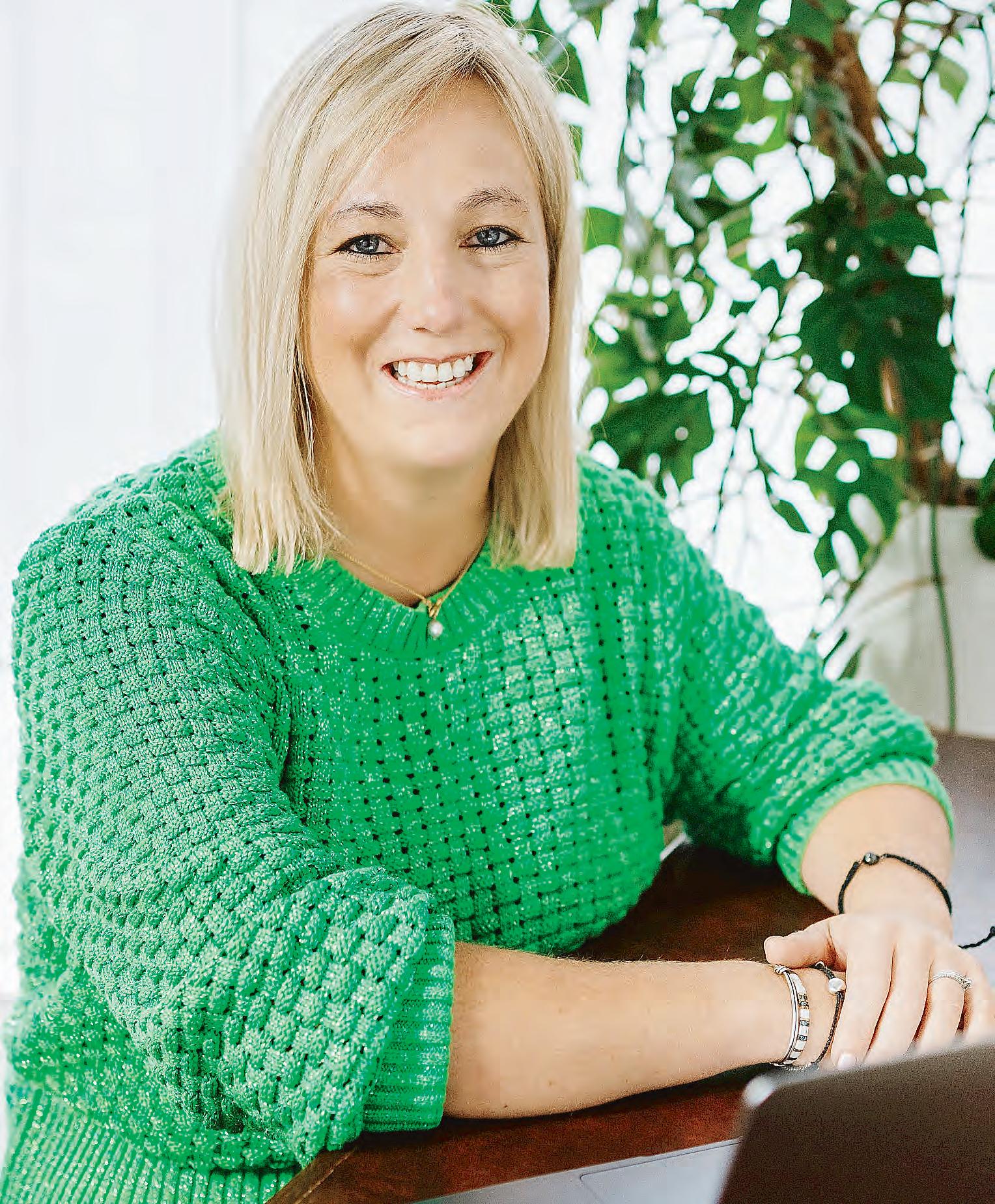
“It’s about finding your own style and finding your way of expressing yourself.”
Following Kelly’s toad encounter, wife course run by legendary author Julia Donaldson to help make her picture always had an affinity

Publisher Scholastic signing her up was “absolutely a dream-come-true moment,” and bringing her words to life through illustrations was “a really interesting part of the process”.
“Unfortunately, I’m not an authorillustrator, I can’t draw at all!” she laughed.
“They have a stable of illustrators they work with and they’ll pair you up based on what the story’s about and what look they have in mind.”
They linked Kelly with illustrator Natasha Carty, who immediately captured her vision for Gareth.
“I couldn’t believe how eerily close it was to how I’d imagined it,” she said.
“The world she’s created is so rich with detail.”
Like the Wes Anderson films she took inspiration from, Natasha’s images contain hidden details.
“There’s a portrait of my dog and my cat that she snuck in there,” Kelly said.
Kelly would love to write a second Gareth story, but for now, she has two new picture books due for release next year.
The first is about a mule named Julie who wants to join her school gymnastics team.
She took inspiration from the saying ‘as stubborn as a mule’ and riffed on the idea of being both mentally and physically inflexible.
Other characters scoff at Julie’s wild pipe dream, but the book delivers a lesson about subverting stereotypes.
“I think it will be visually very colourful and very funny,” Kelly said.
The second is about a gibbon called Glenda, a world pickleball champion who’s never lost a game.
It’s a tale about losing gracefully, born “very much from personal experience of playing games with my daughter”.
“The story looks at how much you can gain from experiencing a loss,” she said.
“Beyond that, I have a few others in the writing and submission processes.”
By Casey Neill
TEACHING our boys that it’s okay to cry is no easy task.
But Gus Worland is doing his best to turn the tide, including releasing a new picture book about building mental fitness.
Gus is a Gotcha4Life founder, speaker, and mental fitness advocate, and appears on TV and radio to encourage men to

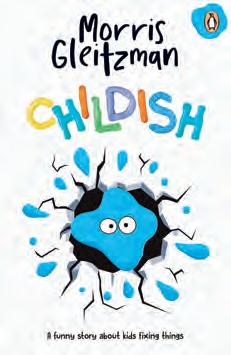
Childish
Morris Gleitzman
A story about why kids are the best people to fix broken things.
CHILDISH:
1. Being a child.
2. Solving big problems using only a really good friendship, an endless supply of the world’s best dumplings, and a thousand kilograms of plasticine.
3. For example, Arkie and Dot.
Penguin
$16.99
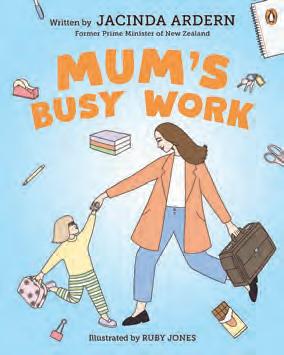
Jacinda Ardern
BASED on real conversations
Jacinda Ardern had with her young daughter while she was the Prime Minister of New Zealand, this book celebrates the relationship between working mums and their children.
Mum’s Busy Work shows how, even when a parent and their child are apart during the day, the love between them is unquestionable.
“Even though day care is fun, it’s still hard not to miss Mum throughout the week!”
“But despite her busy job, there’s always time for stories, time for games, time for hugs, and time for love.”
Picture Puffin
$24.99
share their feelings.
He took the outdated phrase ‘boys don’t cry’ and crafted the warm and humorous Boys Do Cry, about a boy who’s having a really bad day.
No matter what happens, he will not, should not, cannot cry! Or can he?
“I’ve always wanted to write a children’s book,” Gus said.
“I have so many wonderful memories of reading kids’ books to my three kids and my godchildren, as well.
“It’s a really simple book and it’s one that, hopefully, kids enjoy but also carers, parents, and grandparents.
“They might learn a trick or two as well as they read it. That was my hope –that it’s an experience that everyone can learn something from in a minute.”
Dads are telling Gus the book has changed the way they look at their sons, the way they look at themselves.
“Obviously, you want people to enjoy it – but not just enjoy it,
actually learn something from it and then put a slightly different habit into how they parent,” he said.
Gus said ‘boys don’t cry’ was a difficult expectation to turn around.
“For so long we were just told to ‘man up and shut up’,” he said.
“It’s gonna take a few generations for that to turn around, but we’re definitely going in the right direction.
“We really need to focus on these young generations and let them know that it’s not ‘man up and shut up’ – it’s ‘man up and speak up’.
“And speaking up and talking about how you feel is absolutely the way forward, because the old school way isn’t working.
“It doesn’t mean we burst into tears every five minutes or have a meaningful conversation every time we talk, but it does mean that we can talk about how we feel with the right people.”
Gus said that to eliminate the phrase, we all need to be better listeners.
“Kids are growing up in a very different world to the world that parents and grandparents grew up in,” he said.
“Plus, it always comes down to being caring enough and loving enough to be curious about how someone truly feels and not just assuming that because you felt a certain way, that everyone else feels the same way.
“That’s gotta be an absolute focus. It’s up to all of us.”
Gus hopes to follow Boys Do Cry with a series of picture books.
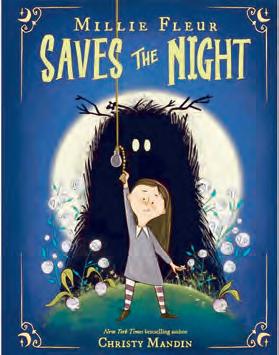
Christy Mandin
MILLIE Fleur Saves the Night is a delightfully peculiar story that encourages readers to find beauty in the darkness.
Millie Fleur knows there are enchanting things that can only be glimpsed in the dark.
But ever since she moved to Garden Glen, her nighttime friends are nowhere to be found. Determined to welcome the dark back to town, Millie Fleur bakes delicious moon pies and plants a sweet-smelling moon garden.
But before the nighttime creatures will return, Millie Fleur must convince the townspeople to be brave and turn out the lights.
Scholastic
$26.99
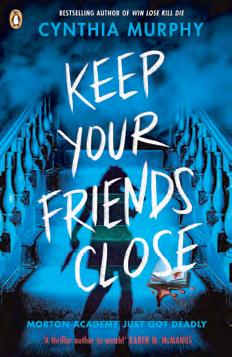
Cynthia Murphy
CHLOE Roberts used to run Morton Academy, before her best friend’s shocking betrayal ripped away her top spot in the school’s secret society, Jewel and Bone.
When Chloe stumbles upon the Book of Crime and Punishment – a record of every misdeed committed by Morton students – it’s not long before entries in the book start to match up with murders of Jewel and Bone members.
Who will be next on the killer’s list?
From the bestselling author of BookTok sensation Win Lose Kill Die and CEO of Plot Twists comes an explosive dark academia thriller.
Penguin
$19.99
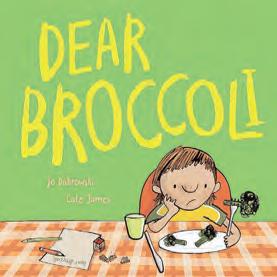
Jo Dabrowski
A deliciously funny picture book that is sure to make even the pickiest of eaters look at their dinner in a new light.
“Dear Broccoli, Last night at dinner you were on my plate. AGAIN. Please don’t come back. From, Frank.”
“Dear Frank, I am afraid I cannot grant your request. The matter is out of my florets. Most respectful regards, Broccoli.” Affirm Press $24.99


